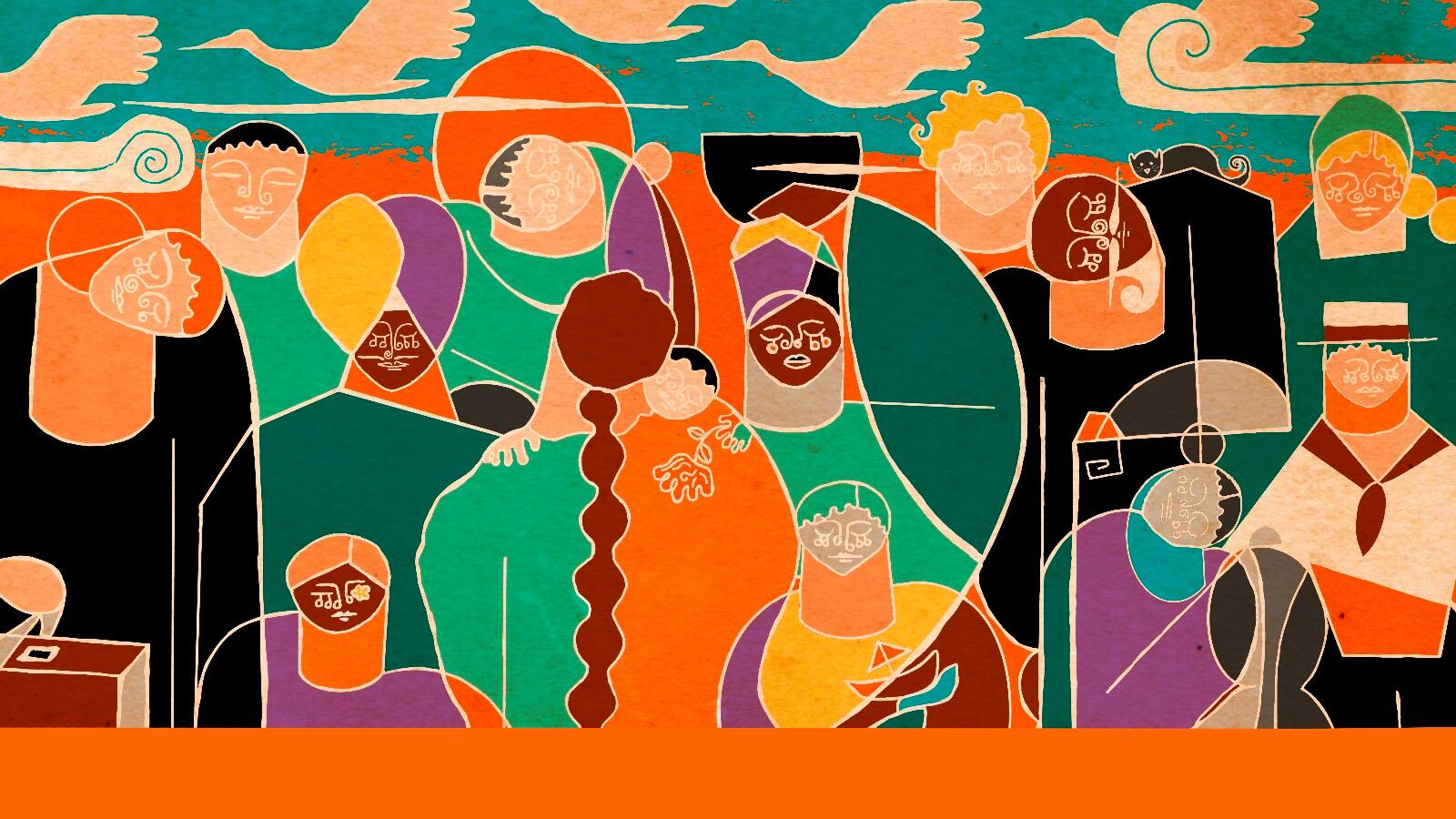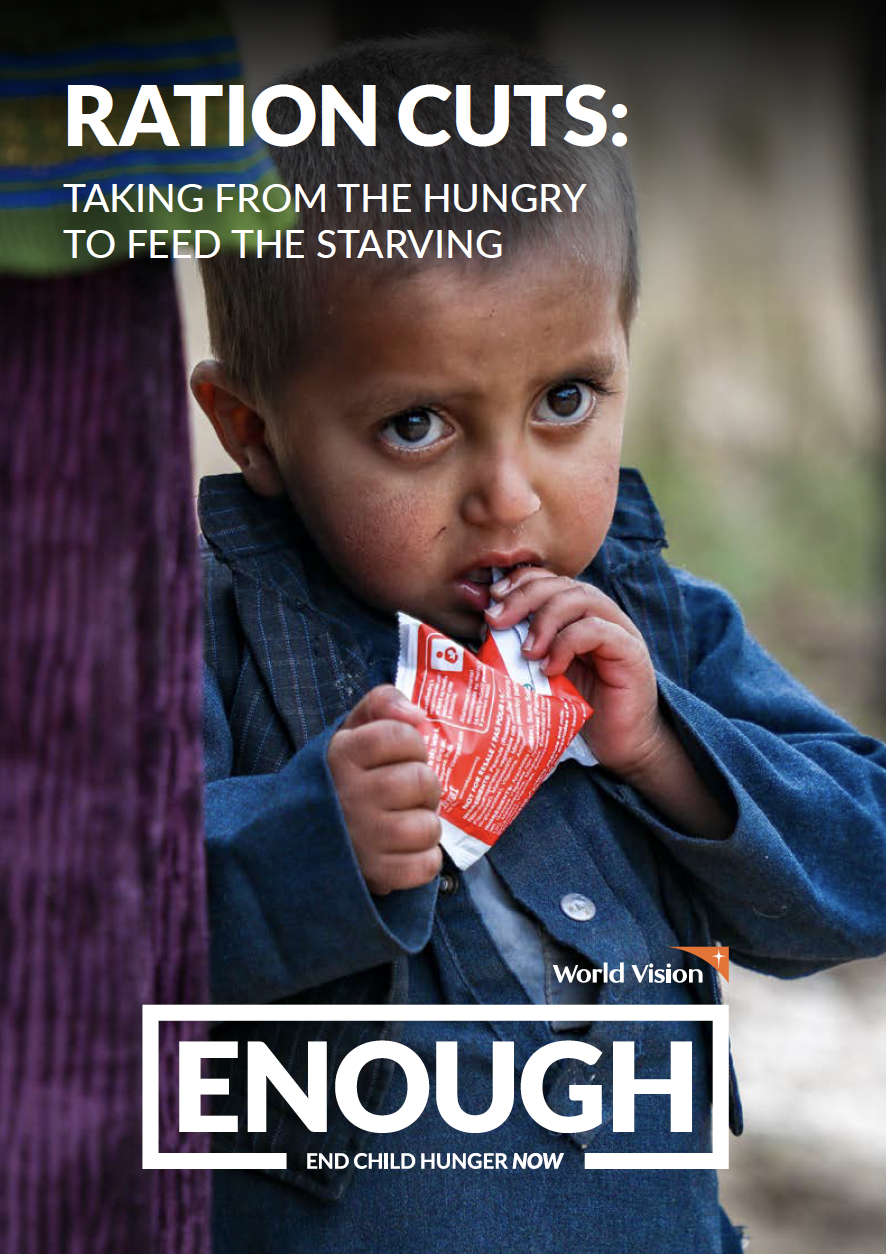
Ration Cuts
TAKING FROM THE HUNGRY TO FEED THE STARVING
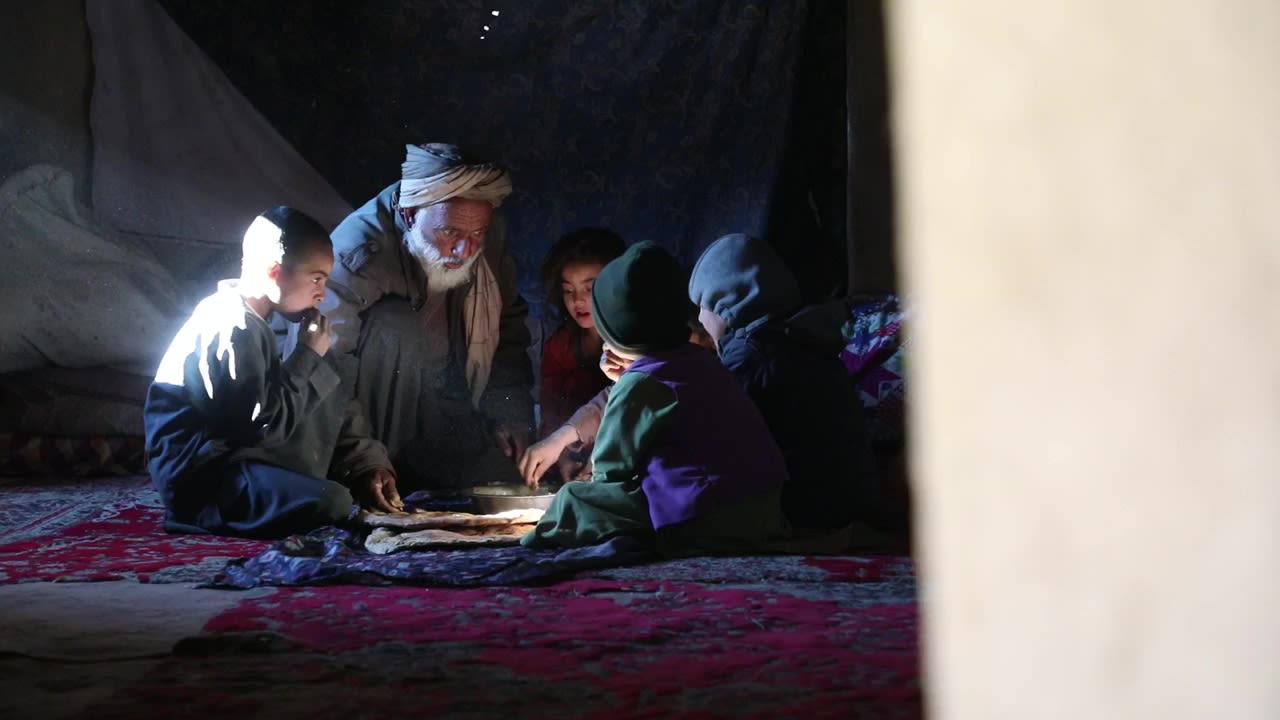
In 2023, World Vision provided over 20 million people in 46 countries with food and cash assistance. Of those, more than 16 million people in 29 countries were reached in partnership with the United Nations (UN) World Food Programme (WFP).
However, faced with shrinking resources and rising needs, humanitarian actors are now being forced to make impossible decisions: restricting food assistance or removing assistance altogether.
It’s time for the world to say ENOUGH. Enough hunger. Enough malnutrition.
Children are already dying of preventable causes related to hunger – the need is urgent. Aid that provides the right proportion and nutrition content for children, on time, must be part of every emergency response.
To better comprehend this alarming crisis and create this report, we surveyed:
A total of 929 people in six countries that have been affected by ration cuts in early 2024.
A mix of displaced, host, and refugee families in Demba and Tanganyika in the Democratic Republic of the Congo (DRC),
refugees in Bidi Bidi refugee settlement in Uganda,
host communities and Syrian refugees in Lebanon,
host and displaced families in Somalia,
Rohingya refugees in Cox’s Bazar in Bangladesh,
and families in Afghanistan.
It is important to note that the findings of this study represent the experiences of specific families, not the countries or global context as a whole.
Keep scrolling to see our sobering findings:
FINDING NO. 1
Children who once consumed two meals per day are eating just one or zero since ration cuts
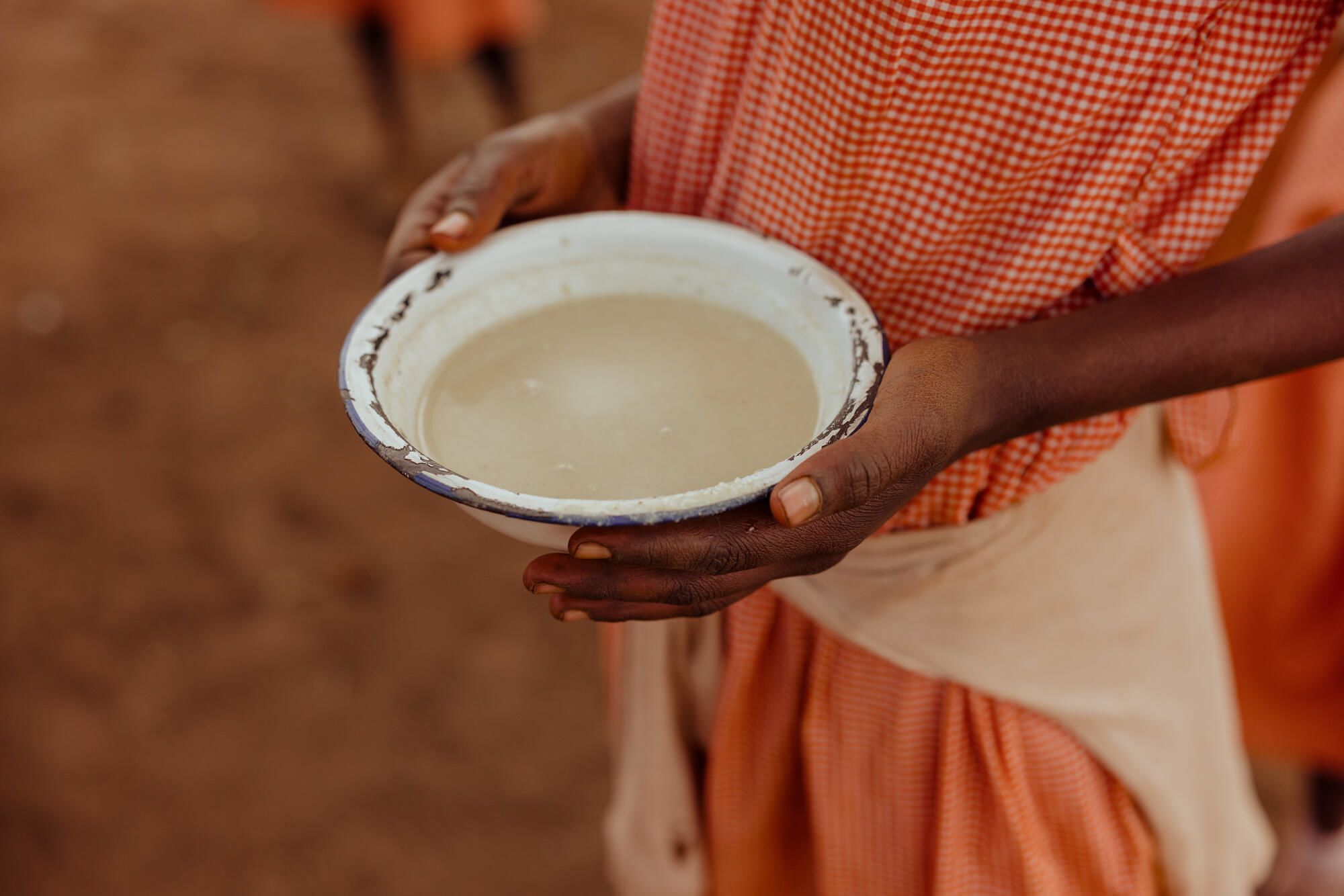
Before and after the cuts
While children on average consumed two meals per day before the cuts, when asked how many meals they were eating in January 2024, most families had eaten just one or no meals the day before. More than two-thirds (68%) people said someone in their family had gone to bed hungry in the past four weeks because there was not enough food, and almost half (46%) said someone had gone a whole day and night without eating.
“These findings should instantly ring an alarm bell. Climate change, conflict, and COVID-19 have left more than 38 million people one step from starvation, and humanitarian aid is struggling to keep up. Children are telling us about parents sending them to work or get married, and in some cases, considering suicide as a result of the cuts.”
The ration cuts are impacting the world's most vulnerable people. We need urgent action, now.
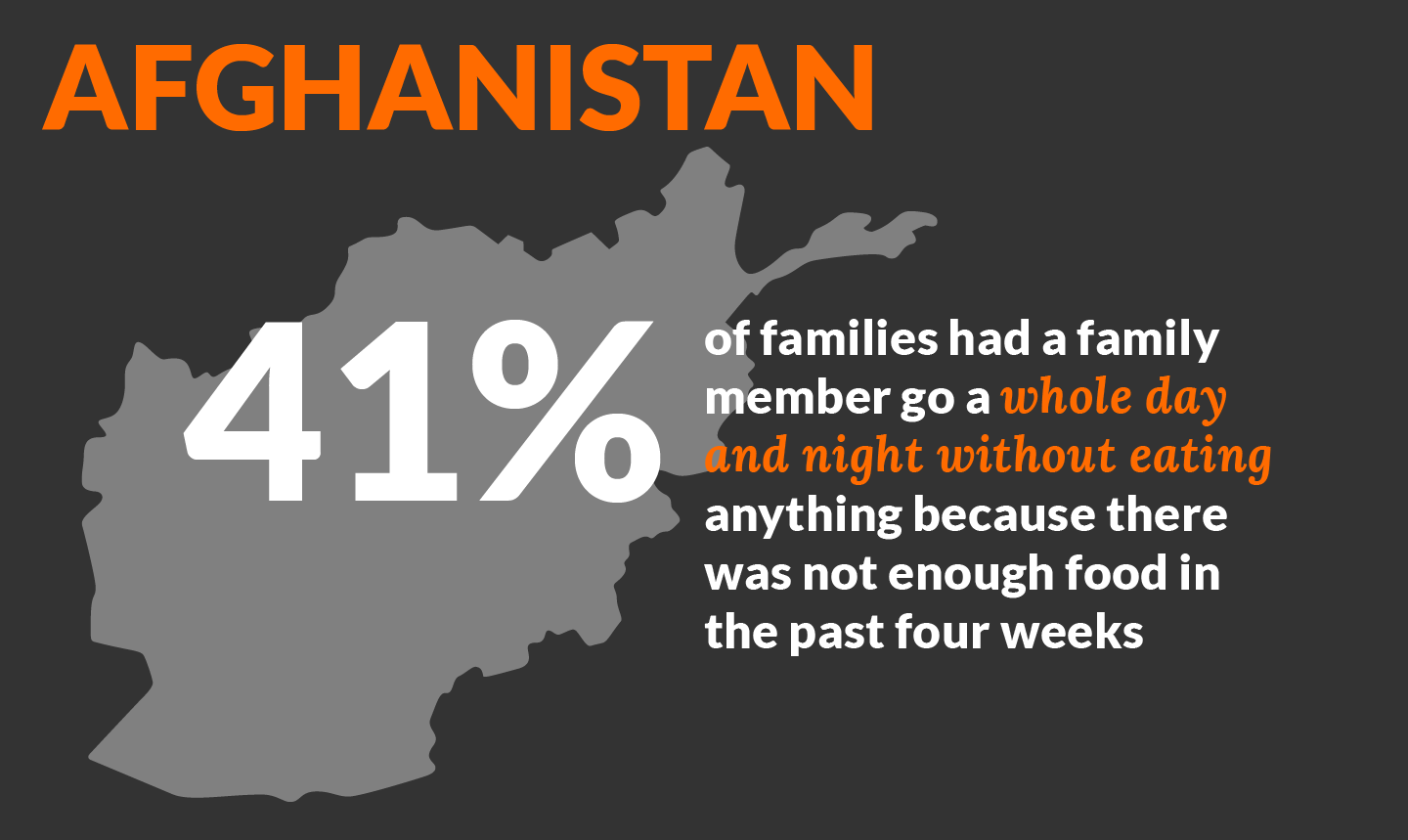
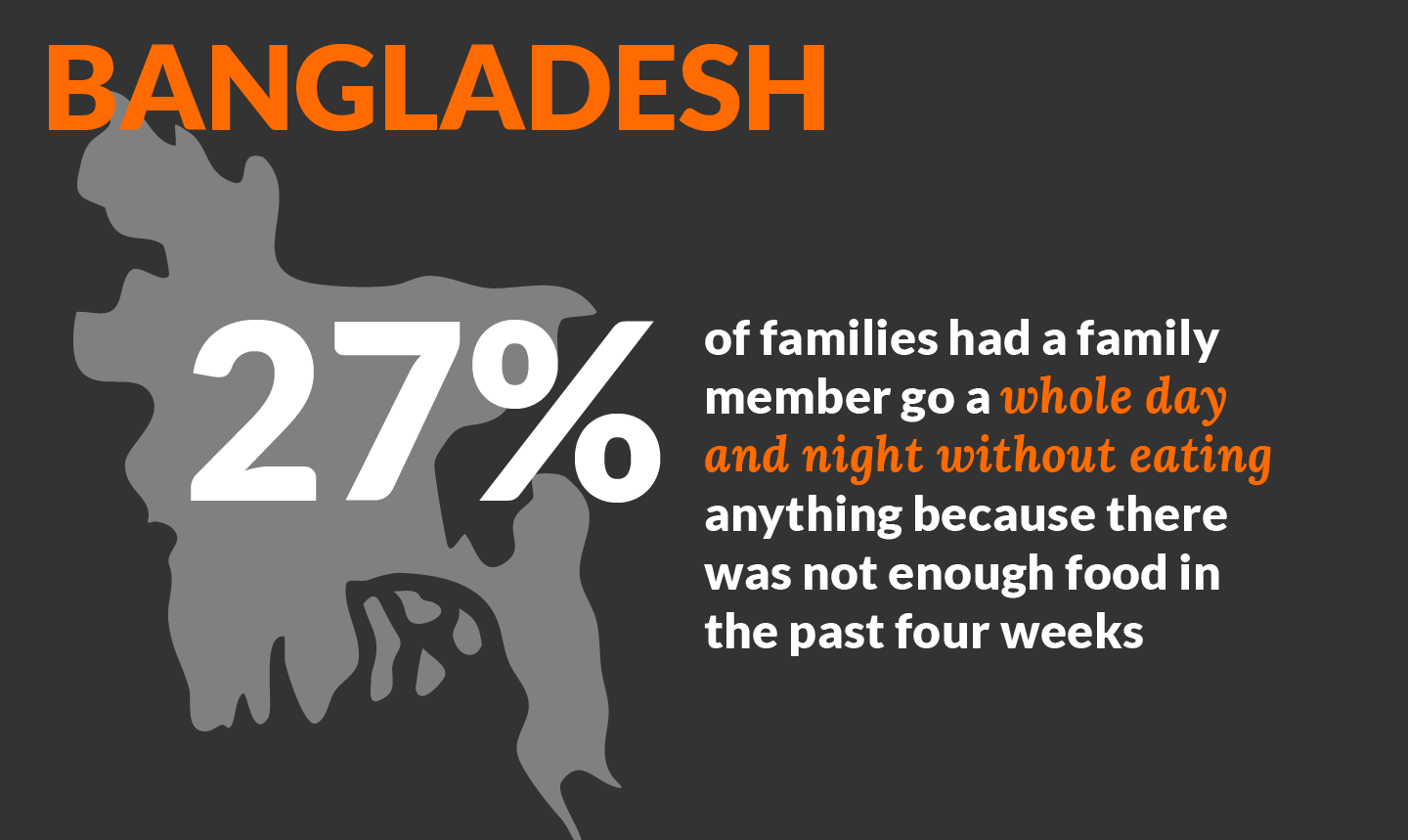
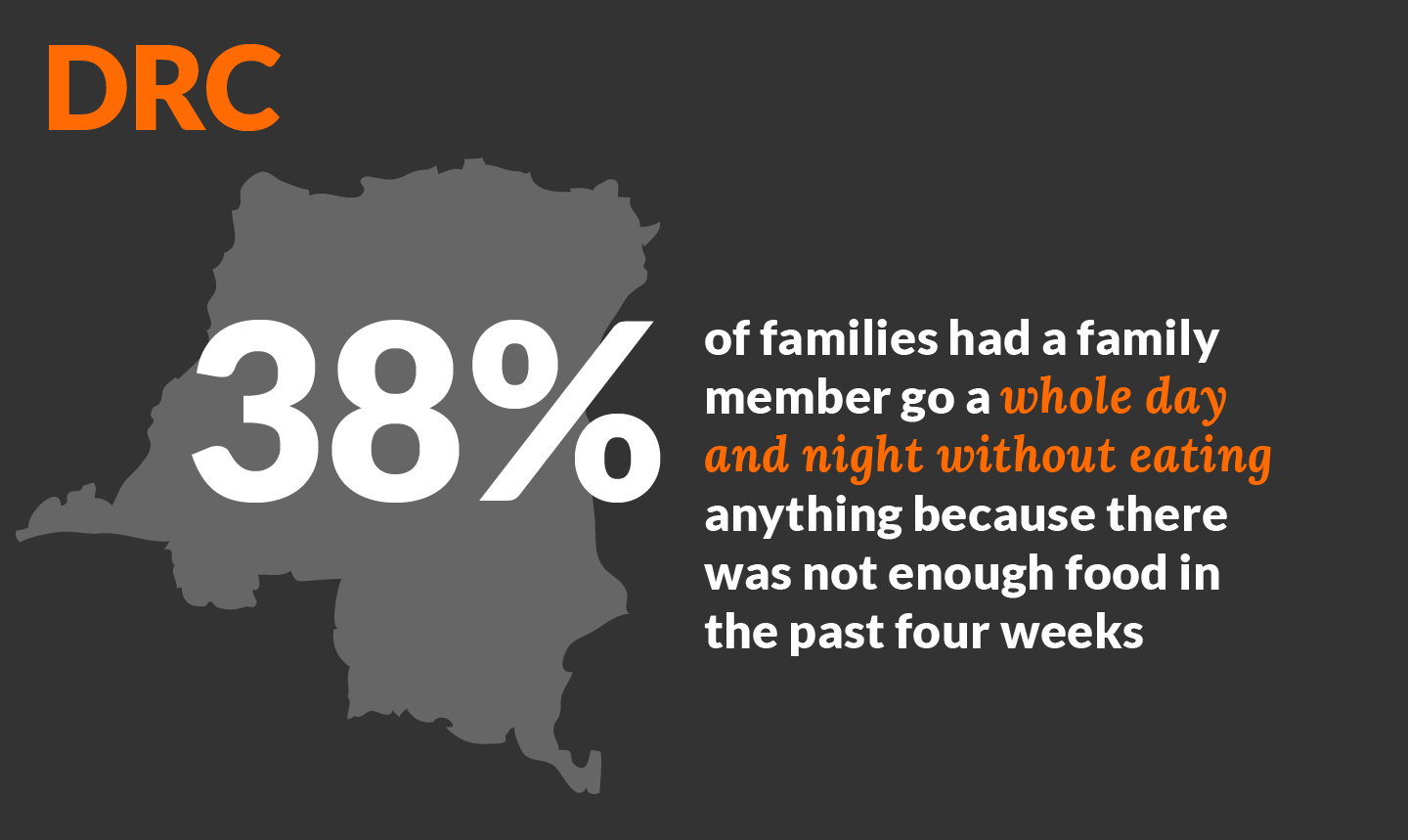
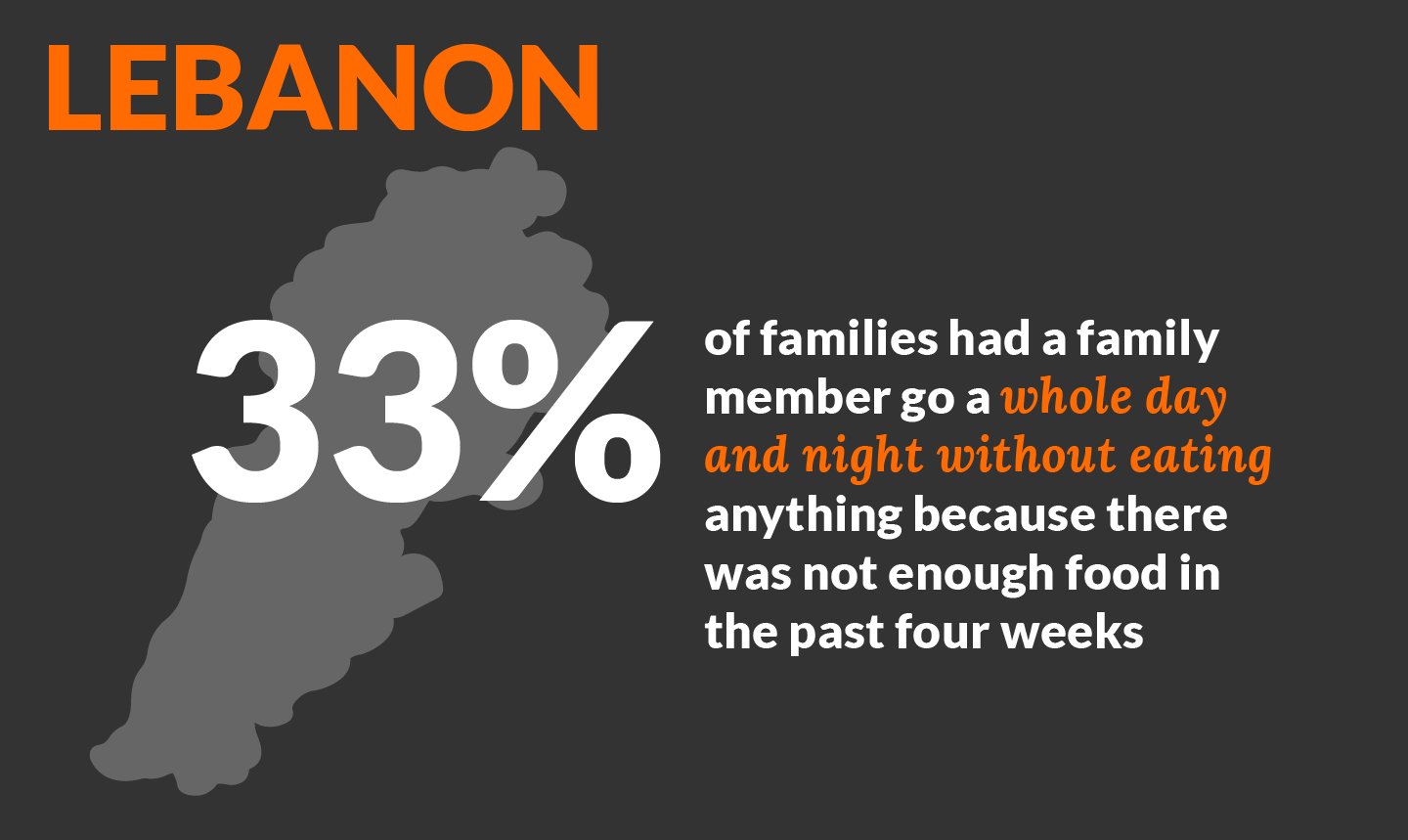
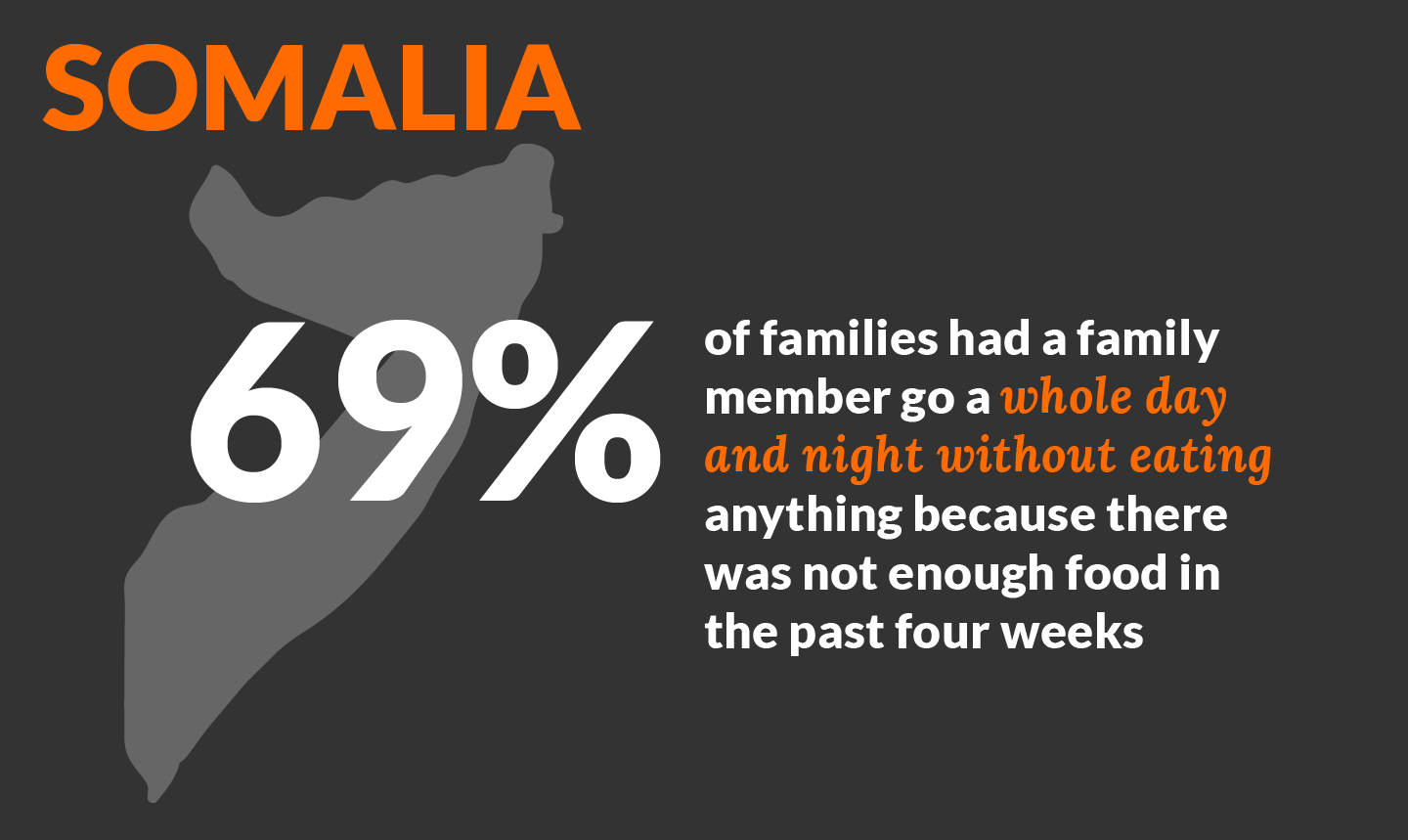
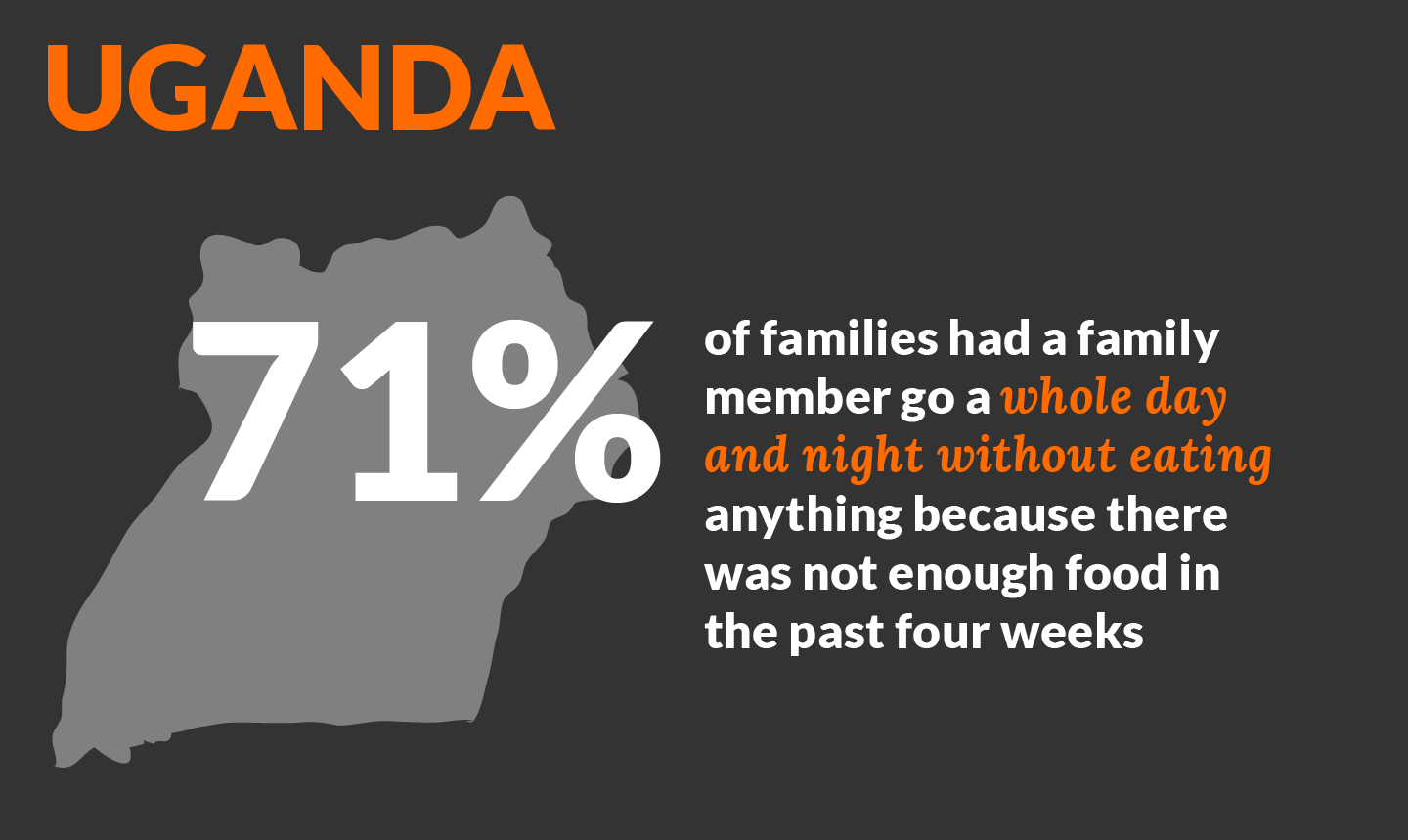
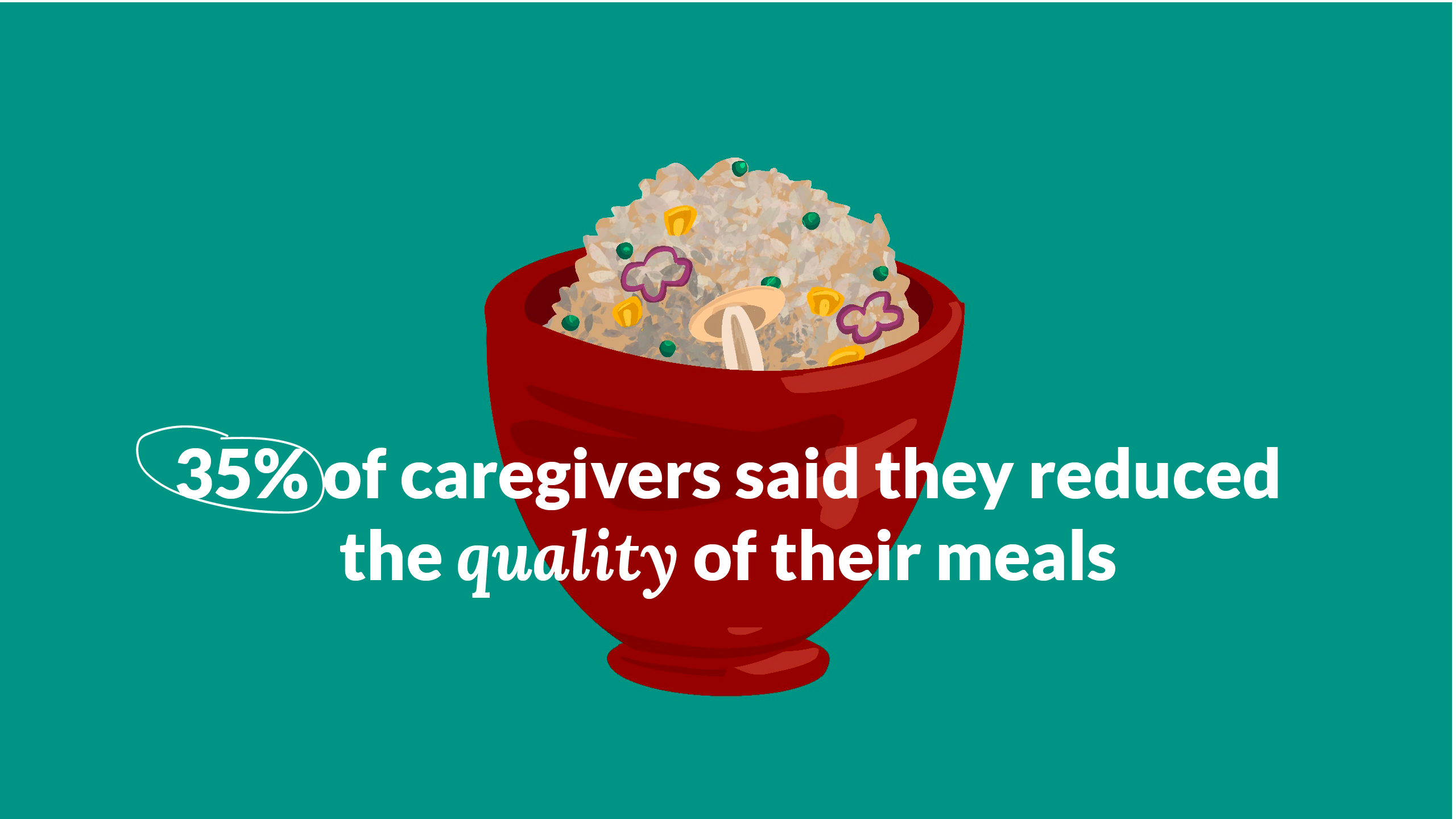
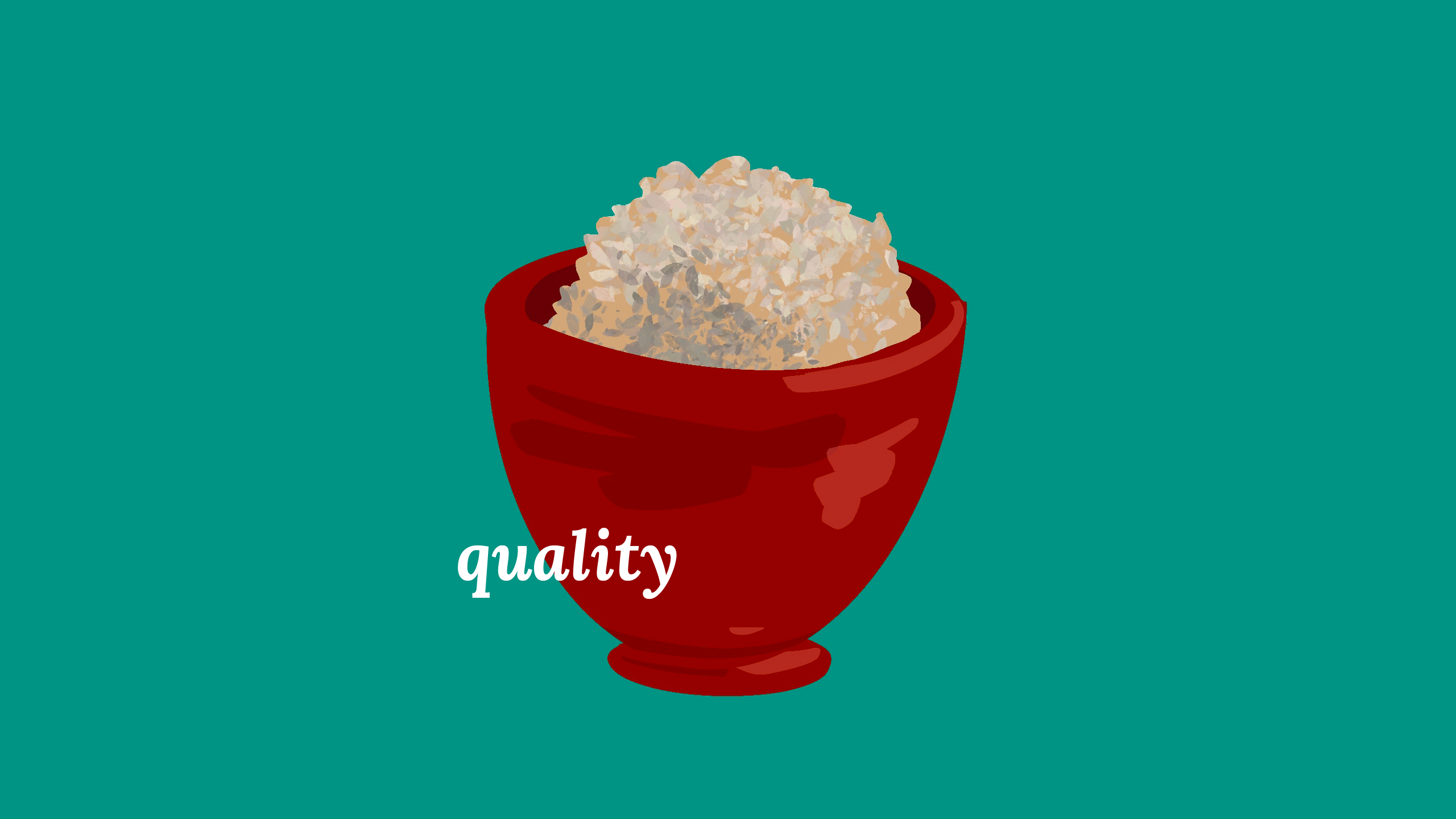
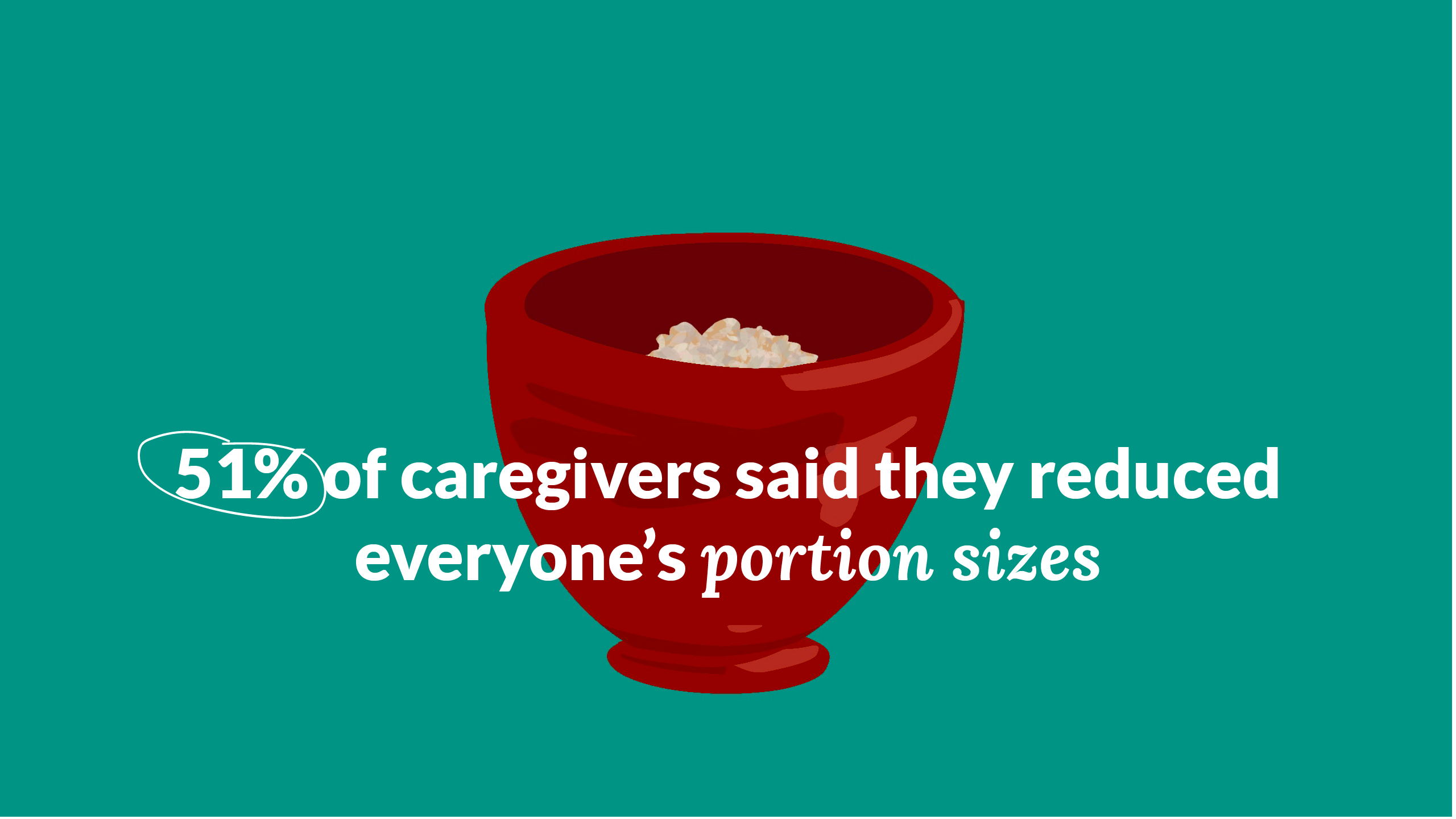
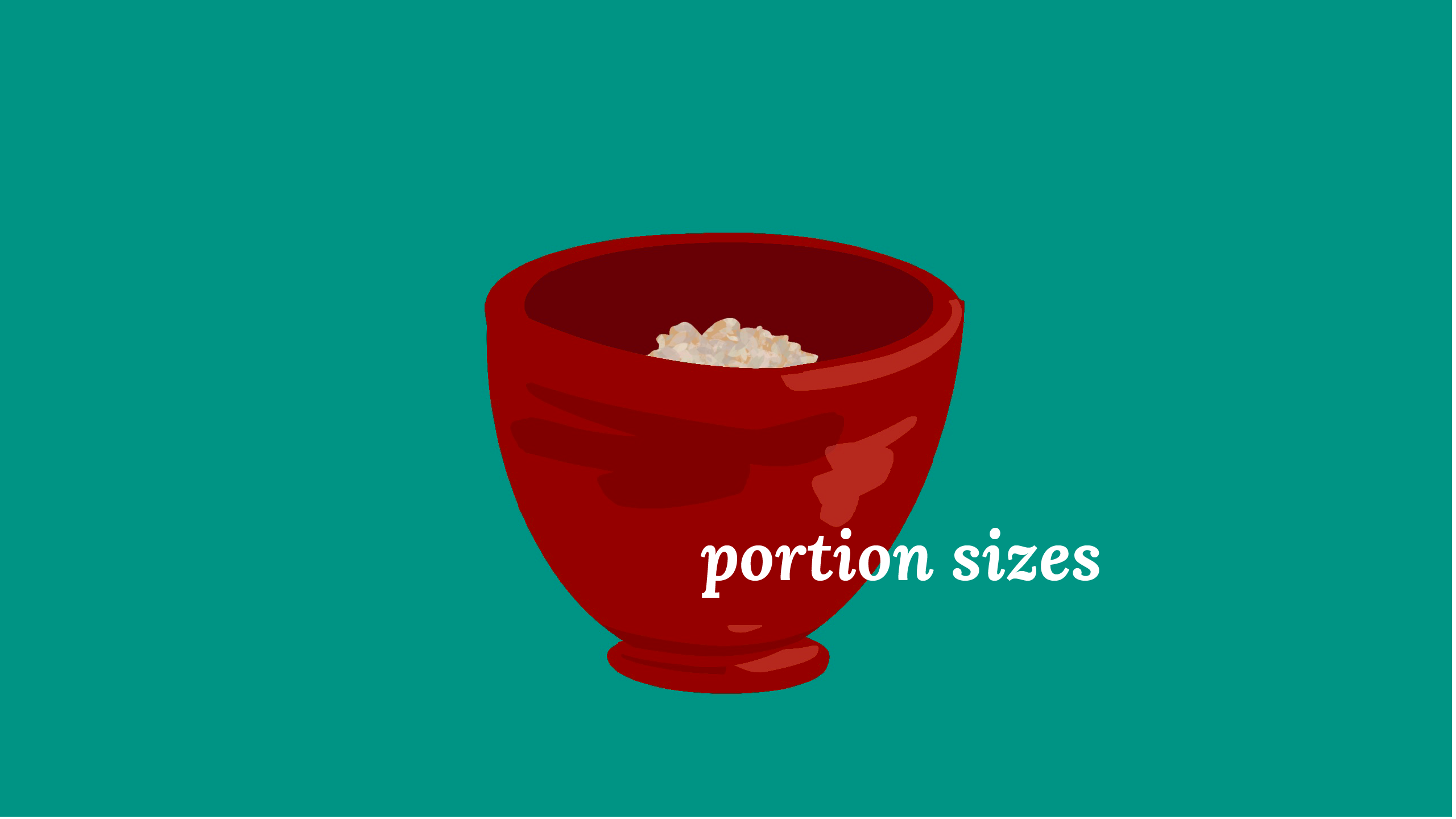
FINDING NO. 2
Ration cuts are pushing more families into debt and forcing them to increase working hours
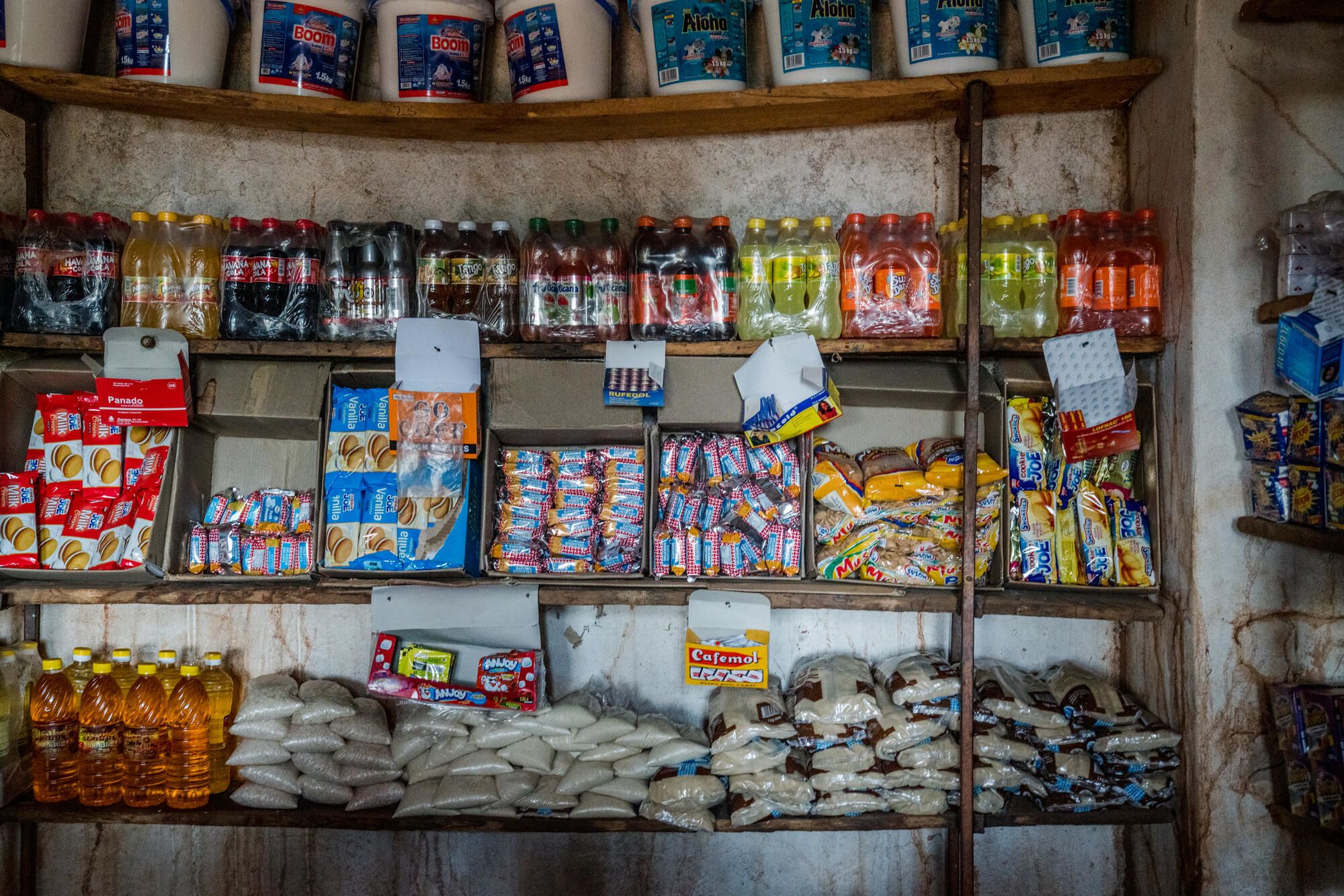
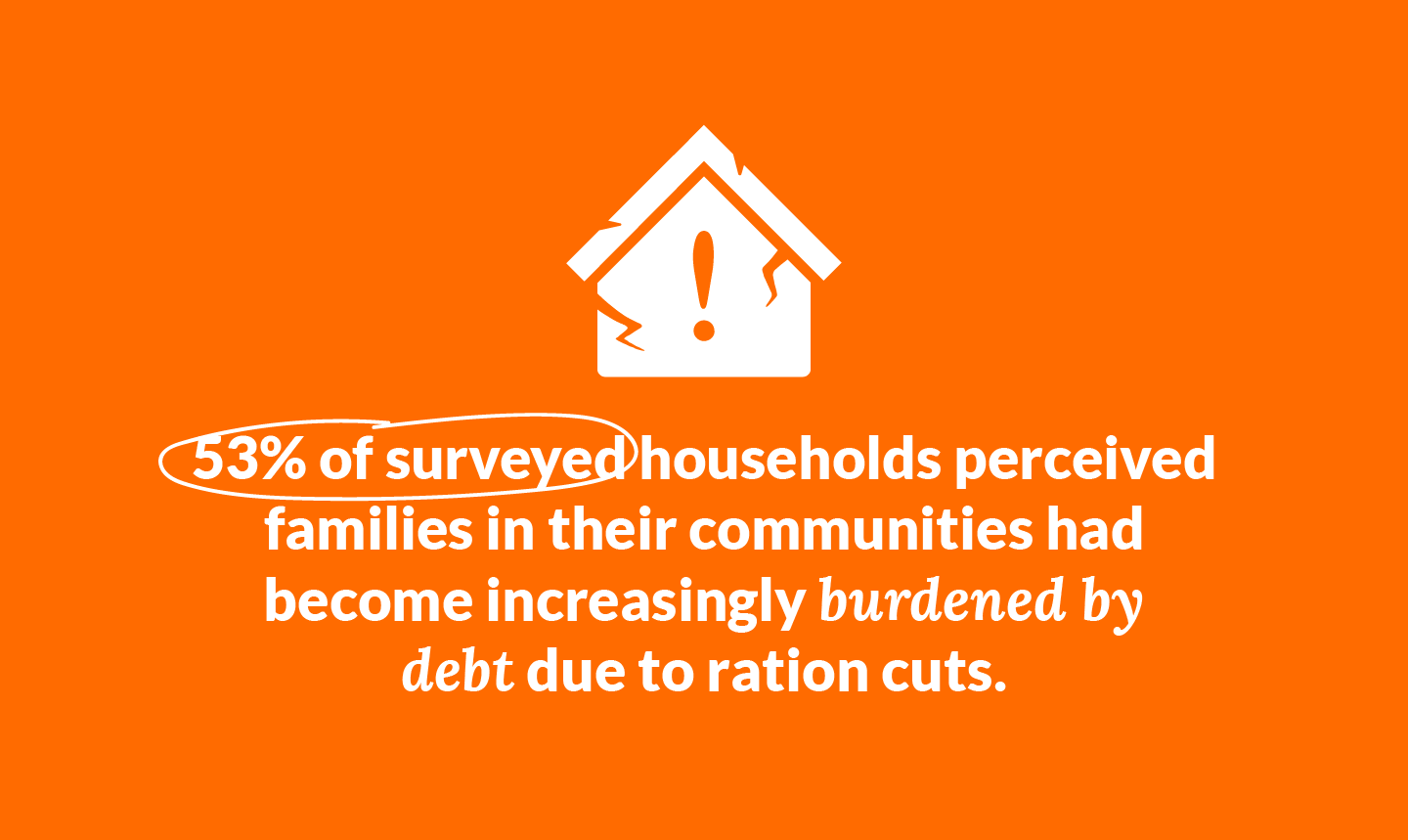
Coping strategies
In addition to the reduced quality and quantity of food consumed, ration cuts were associated with the use of negative coping mechanisms to manage this crisis. For example, 53% of surveyed households perceived families in their communities had become increasingly burdened by debt due to ration cuts.
To cope with the scarcity of food, 46% of families reported resorting to borrowing money from a friend, relative, or neighbour to make ends meet. This was less common amongst internally displaced families, however, with 23% resorting to borrowing money from friends and neighbours.
“The reduction of rations has affected everyone in general, with men having to increase their work efforts and women working hard in their homes and sometimes without eating to save the little food that had been distributed.”
Besides increased debt taken on by adults, we found that once again, children are disproportionately affected by these negative coping mechanisms. The next few findings will explain how their health, protection, education, and mental health are at greater risk than ever before.
FINDING NO. 3
Ration cuts are impacting health and nutrition
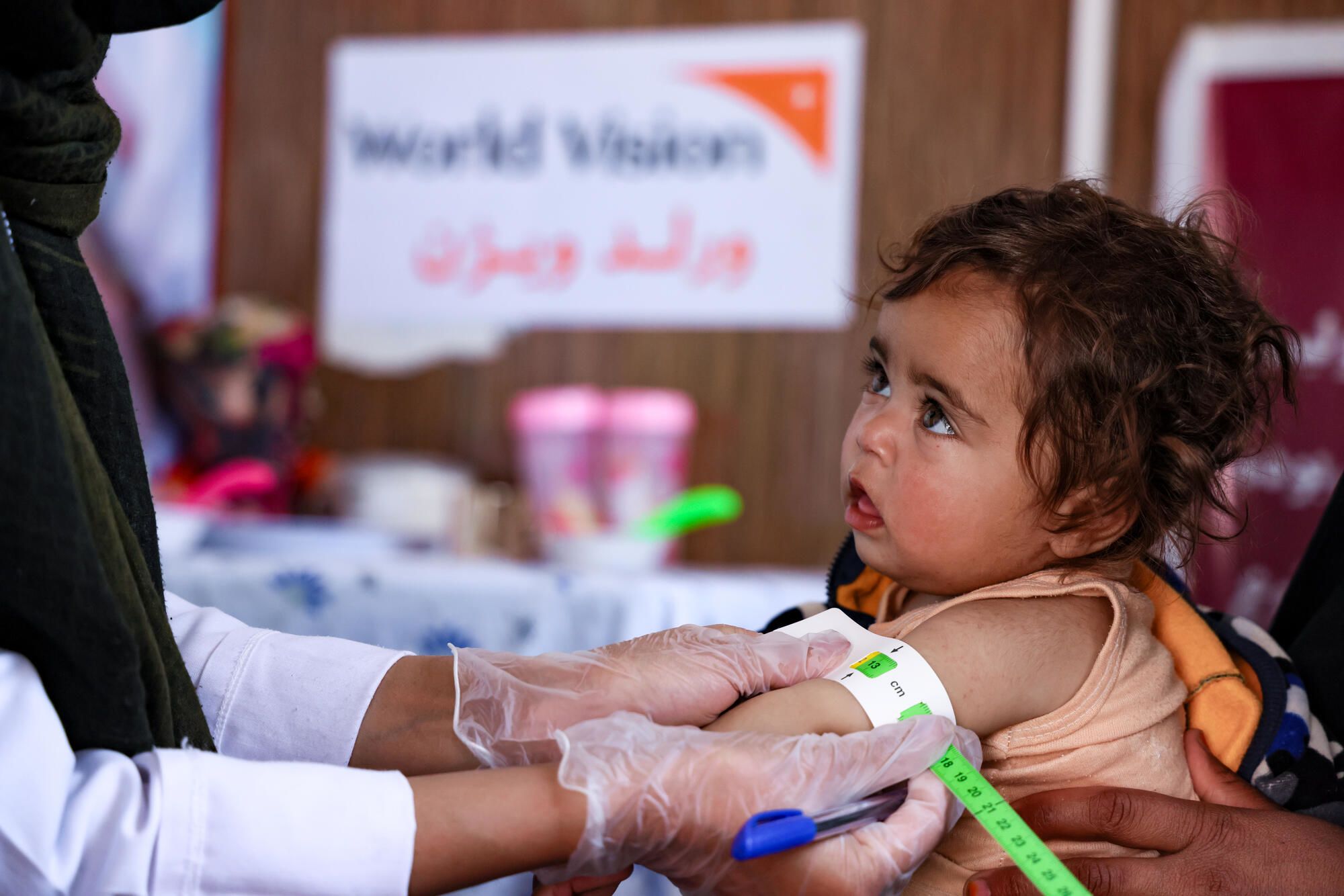
More than just hunger
Beyond the feeling of an empty stomach, prolonged and acute food insecurity negatively affects children’s and carers’ physical health in many ways. In addition to pre-existing health needs, caregivers thought the ration cuts were exacerbating already dire health problems, including malnutrition and waterborne diseases.
“Malnutrition conditions have gone worse because of the ration cuts, and the reduction in rations has worsened malnutrition conditions within refugee communities.”
More than half of parents and caregivers in Afghanistan (97%), Lebanon (66%) and Uganda (82%) say they are spending less on children’s health-care needs as a result of the ration cuts.
Our results show that 42% of caregivers surveyed perceive that food ration cuts contributed to children suffering from malnutrition because they received even less nourishment and micronutrients.
“Malnutrition can result in a variety of health issues, including stunted growth, weakened immune systems, increased susceptibility to infections, and deficiencies in essential nutrients.”
The health situation in Afghanistan appears to be especially bad, where more than 90% of caregivers said children are suffering from preventable illnesses due to lack of medicine (97%), wasting (97%), and preventable diseases like diarrhoea because of ill health due to hunger (94%).
Disproportionate impact: Women, girls, and children with disabilities
Being exposed to prolonged periods of food insecurity and poor diet contributes to malnutrition, including micronutrient deficiencies. This is harmful to women, adolescent girls, and children, especially. When a malnourished girl or woman gets pregnant, there is a risk that her child will be born malnourished, repeating the cycle for the next generation. The findings also point to the evidence that girls and women, especially girls with disabilities, are disproportionately impacted by ration cuts.
Severe hunger and malnutrition also weaken women and girls’ immune systems, leading to more illness and increasing their risk of life-threatening issues during pregnancy and childbirth. Poor maternal nutrition has debilitating and even deadly consequences for infants and young children. Maternal undernutrition, including micronutrient deficiencies, increases the risk of stillbirth, newborn death, and preterm delivery, as well as impaired foetal development, which has lifelong consequences for children’s nutrition, growth, learning, and future earning capacity.
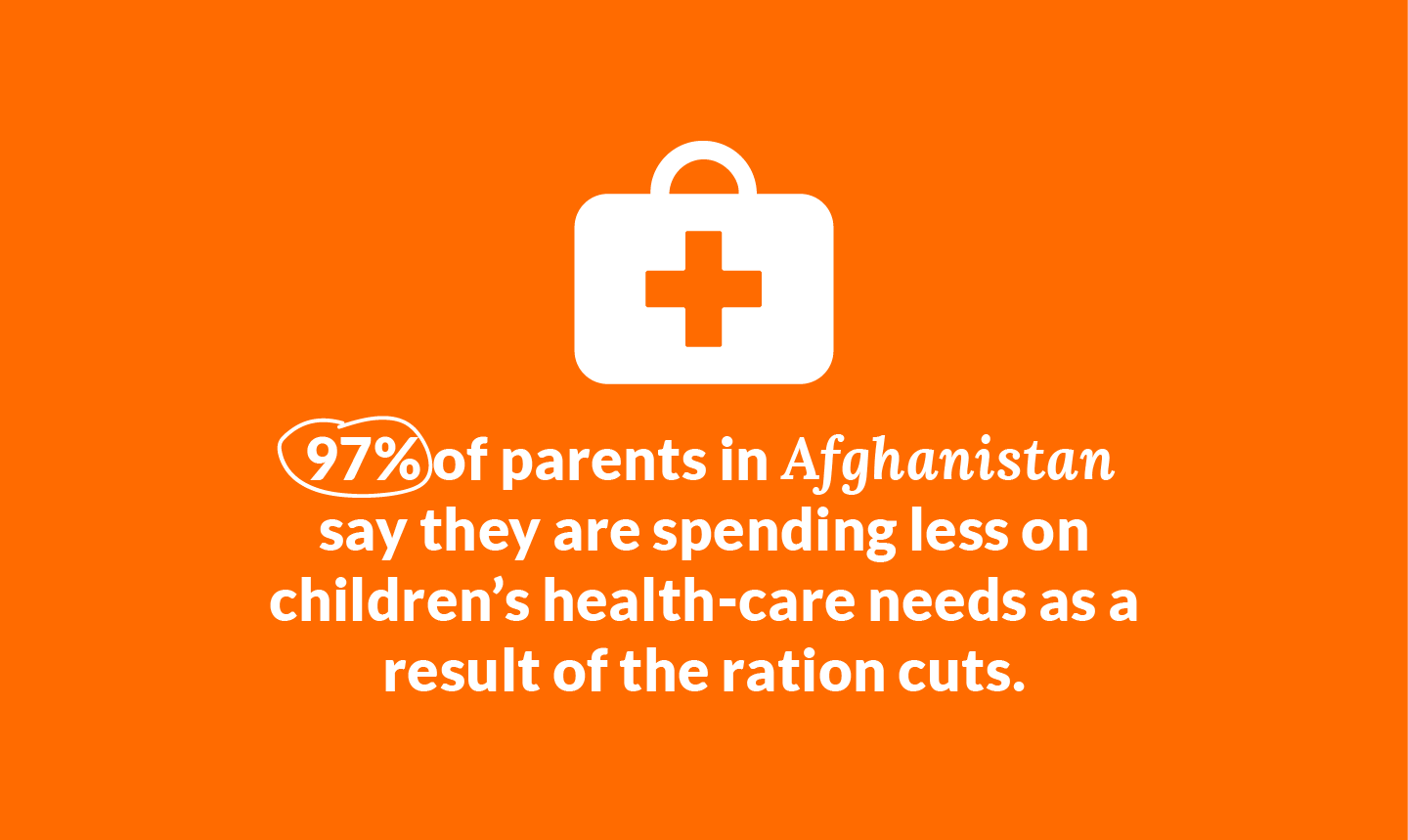
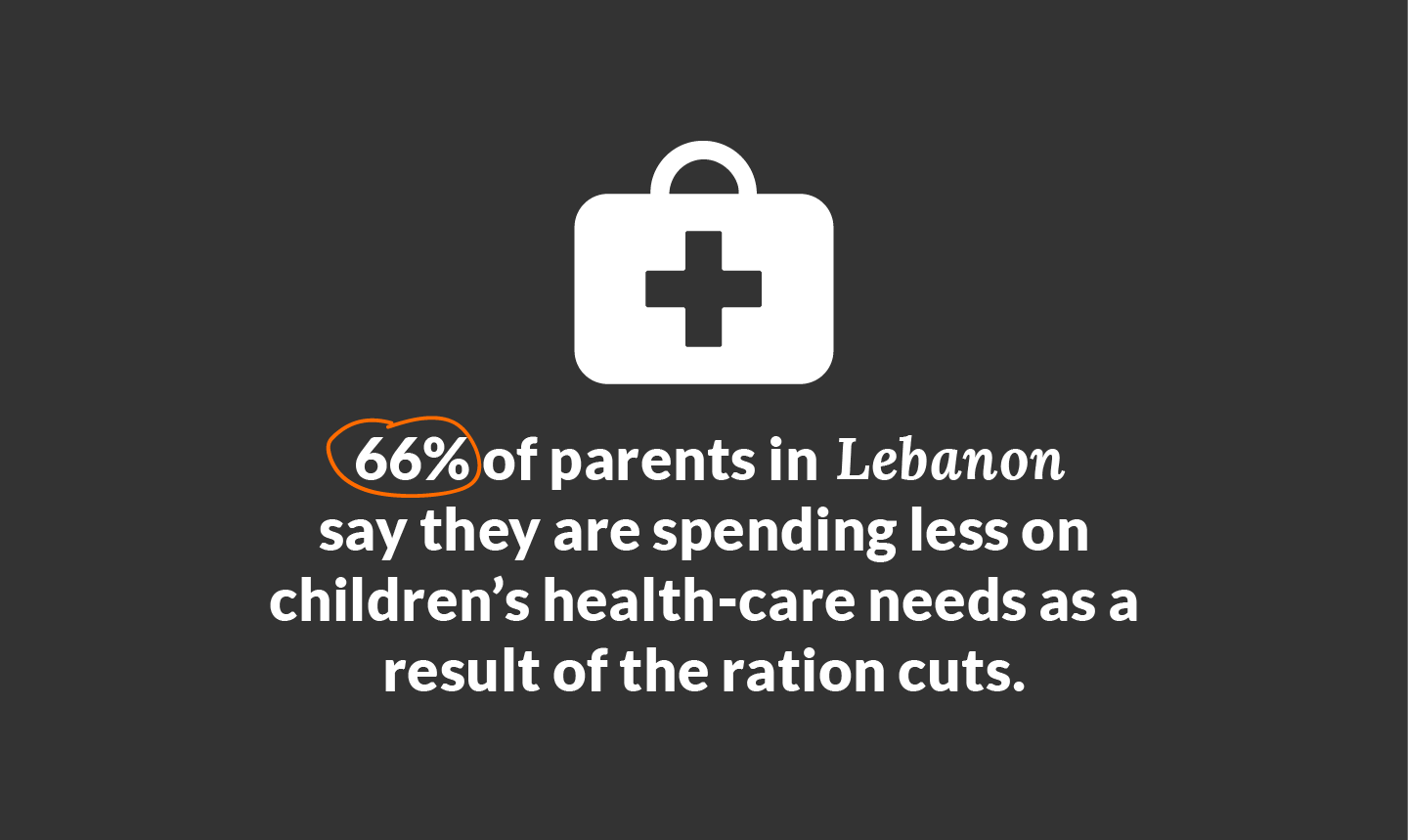
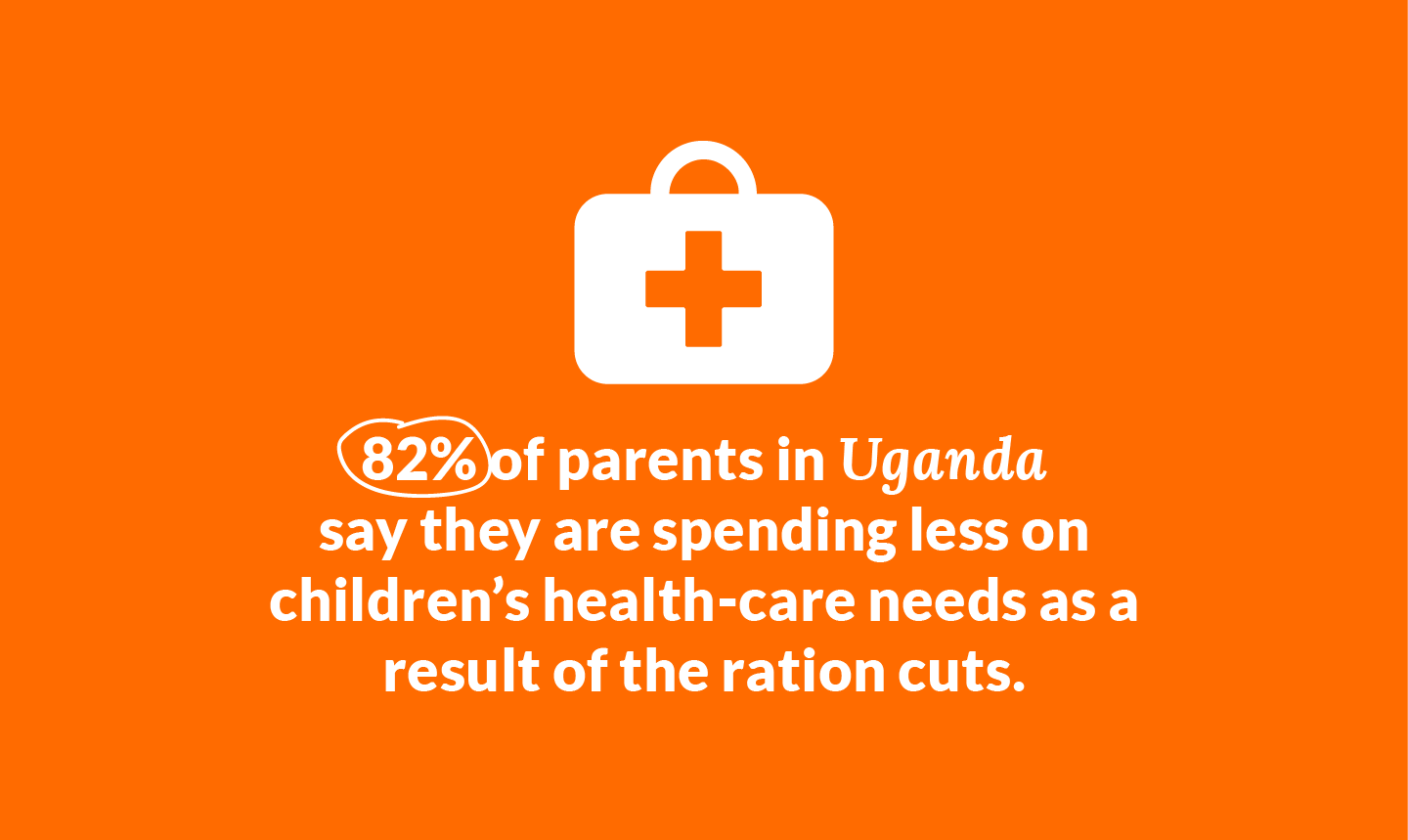
FINDING NO. 4
Ration cuts are accelerating a mental health crisis
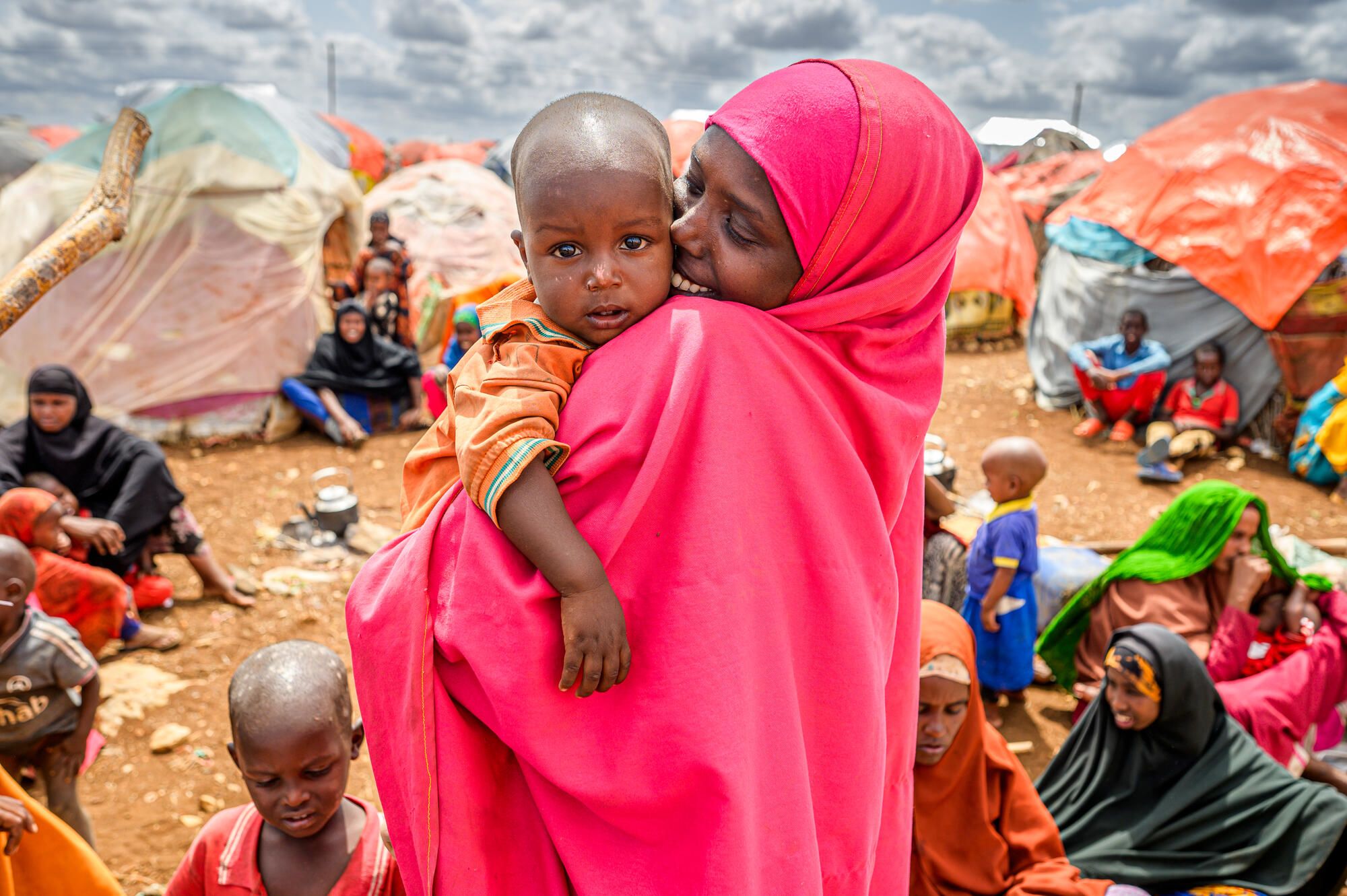
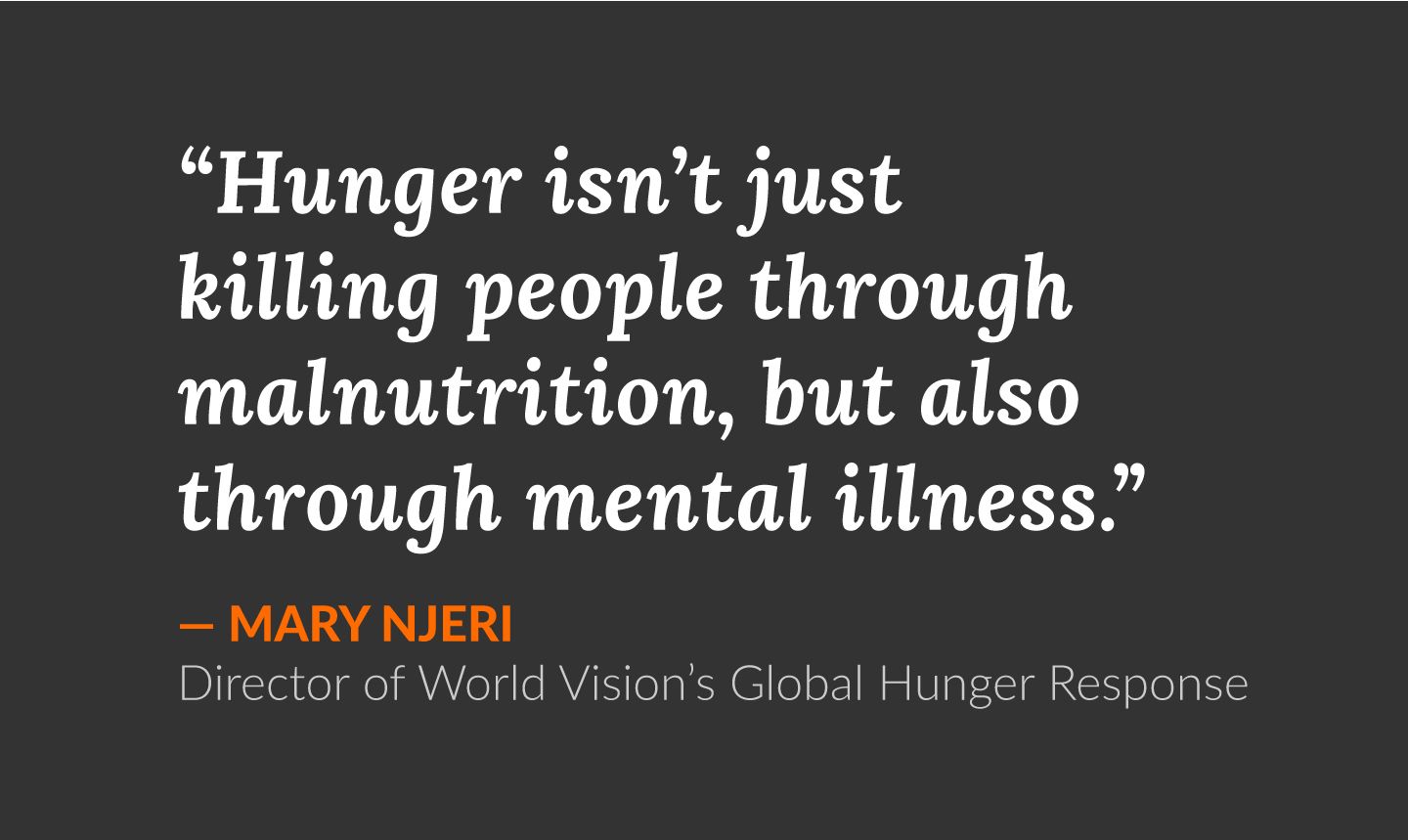
The mental burden of hunger
It's natural to consider the devastating physical impacts of hunger, but have you thought about the mental toll of not knowing where your next meal will come from or how you'll feed your family?
There is a complex relationship between food security and mental health. The stress of experiencing rations cuts may compound past traumatic experiences, such as bombings, escapes, or conflict events. Children who have previously experienced traumatic events, such as forcibly displaced children, are more vulnerable to new stressors. Fear of death, destruction, injury, and loss of loved ones may resurface together with overarching fear and sadness.
“Children experiencing food insecurity feel anxious, stressed, ashamed, or worried about where their next meal will come from, leading to emotional distress and low self-esteem.”
The findings paint a sobering picture, with more than one in ten (13%) adults saying they feel so hopeless that they no longer want to carry on living all of the time. Half (50%) of adults said they felt that way most or some of the time. In Afghanistan, parents' answers seem to indicate that almost all adults (97%) are at risk of mental health disorders - more than four times the prevalence for other conflict-affected populations; levels were also four times higher in Lebanon (89%); and more than three times in Bidi Bidi (79%).
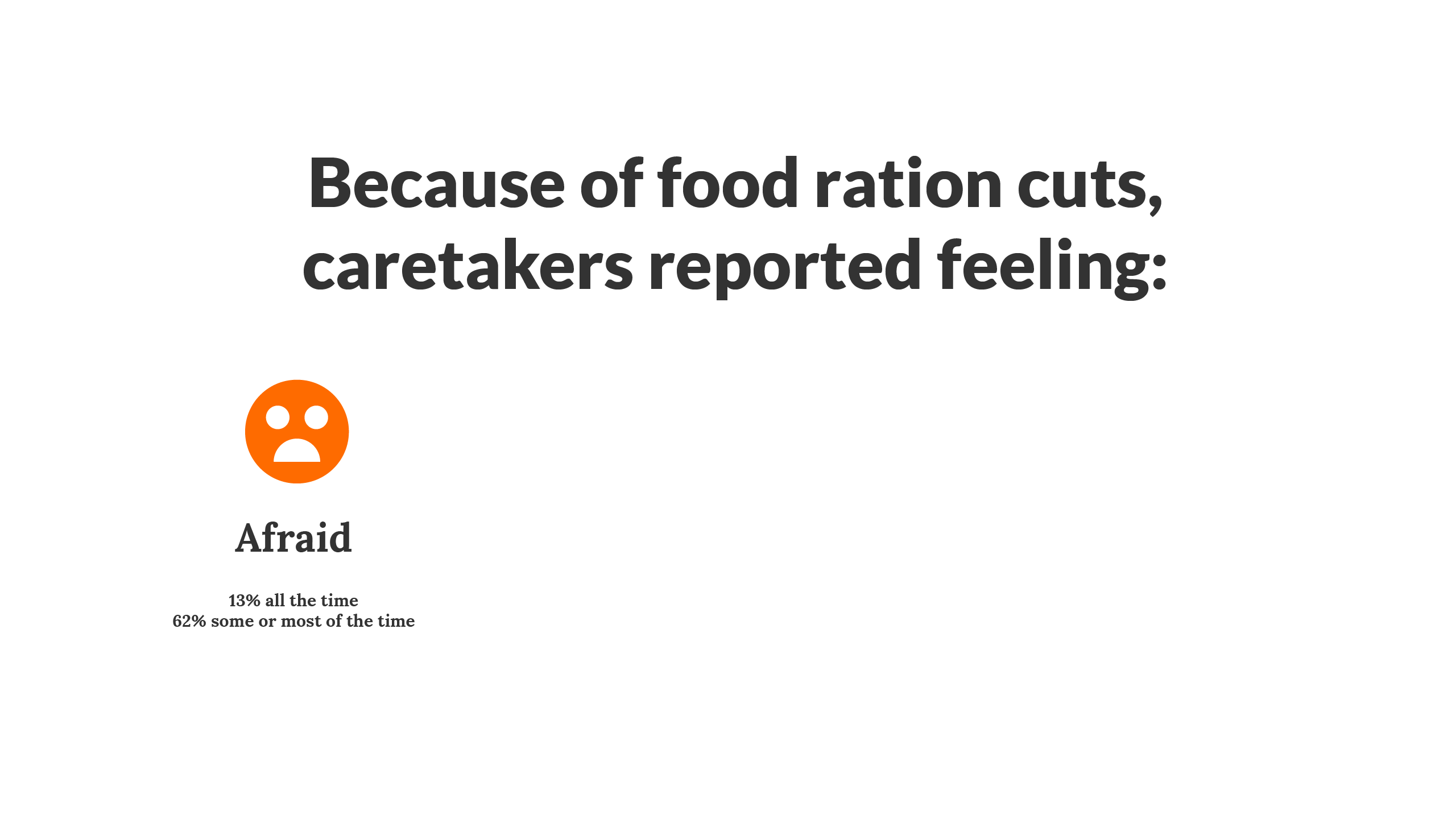
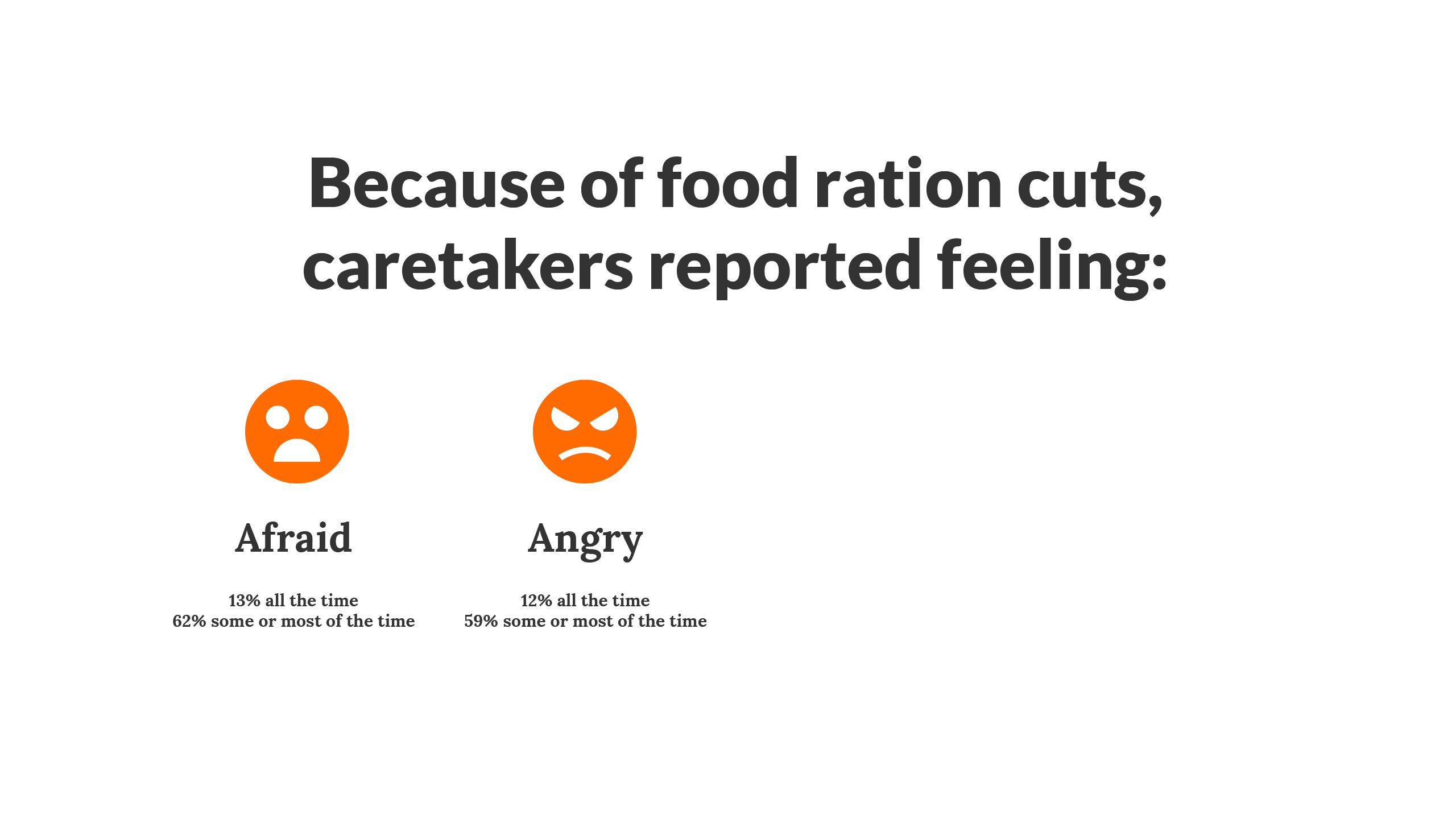
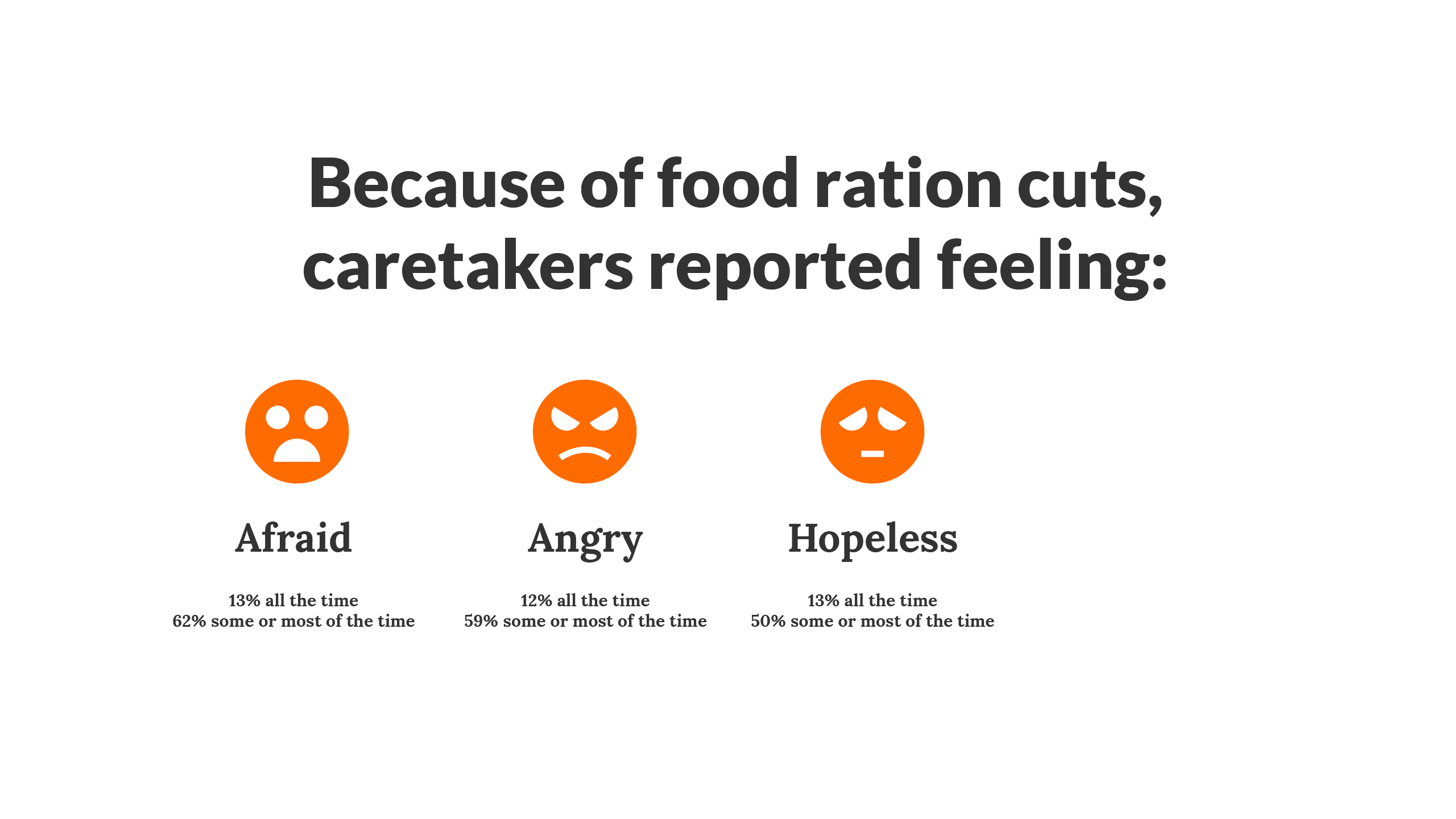
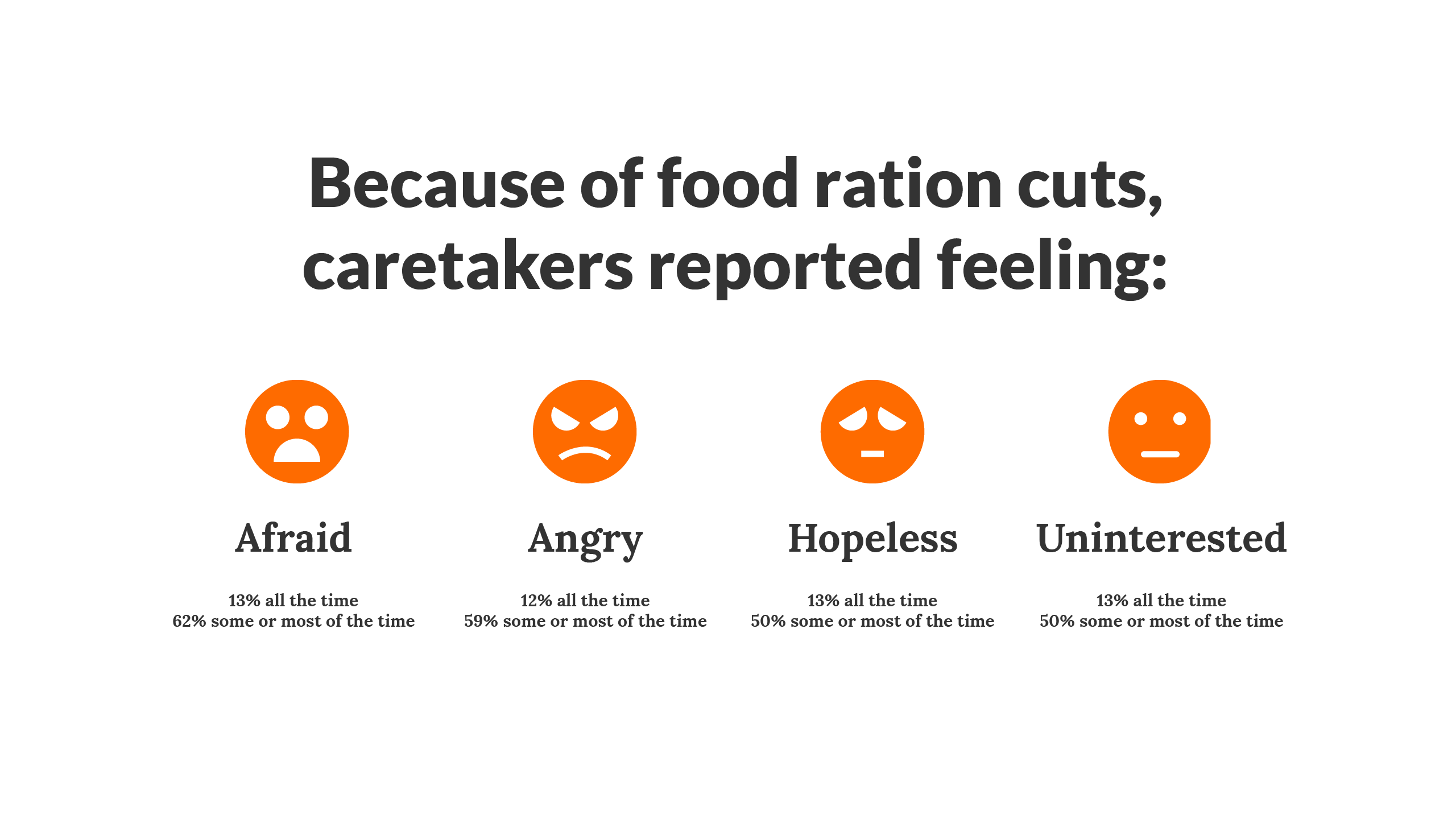
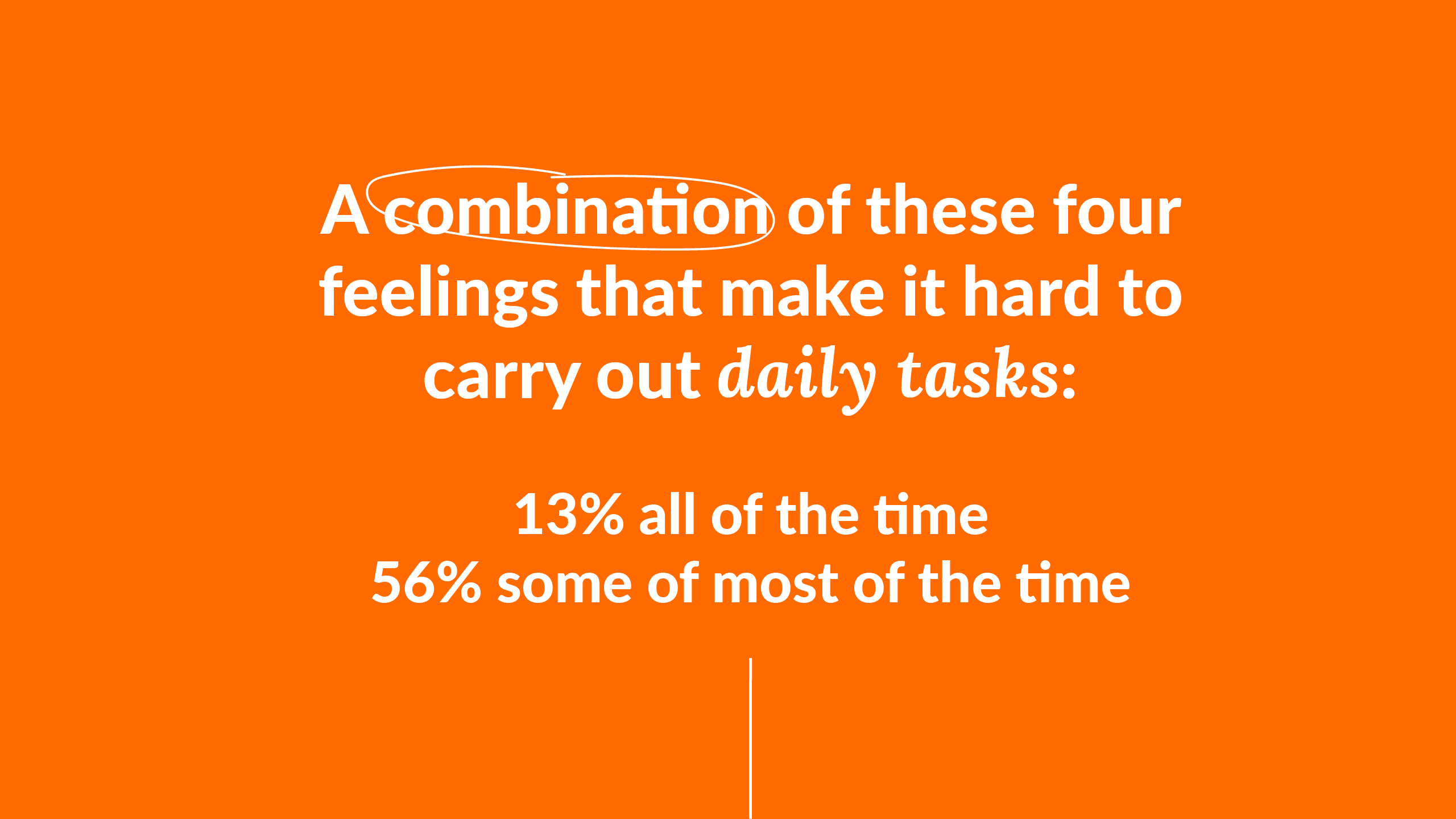
FINDING NO. 5
Ration cuts are worsening the child protection crisis
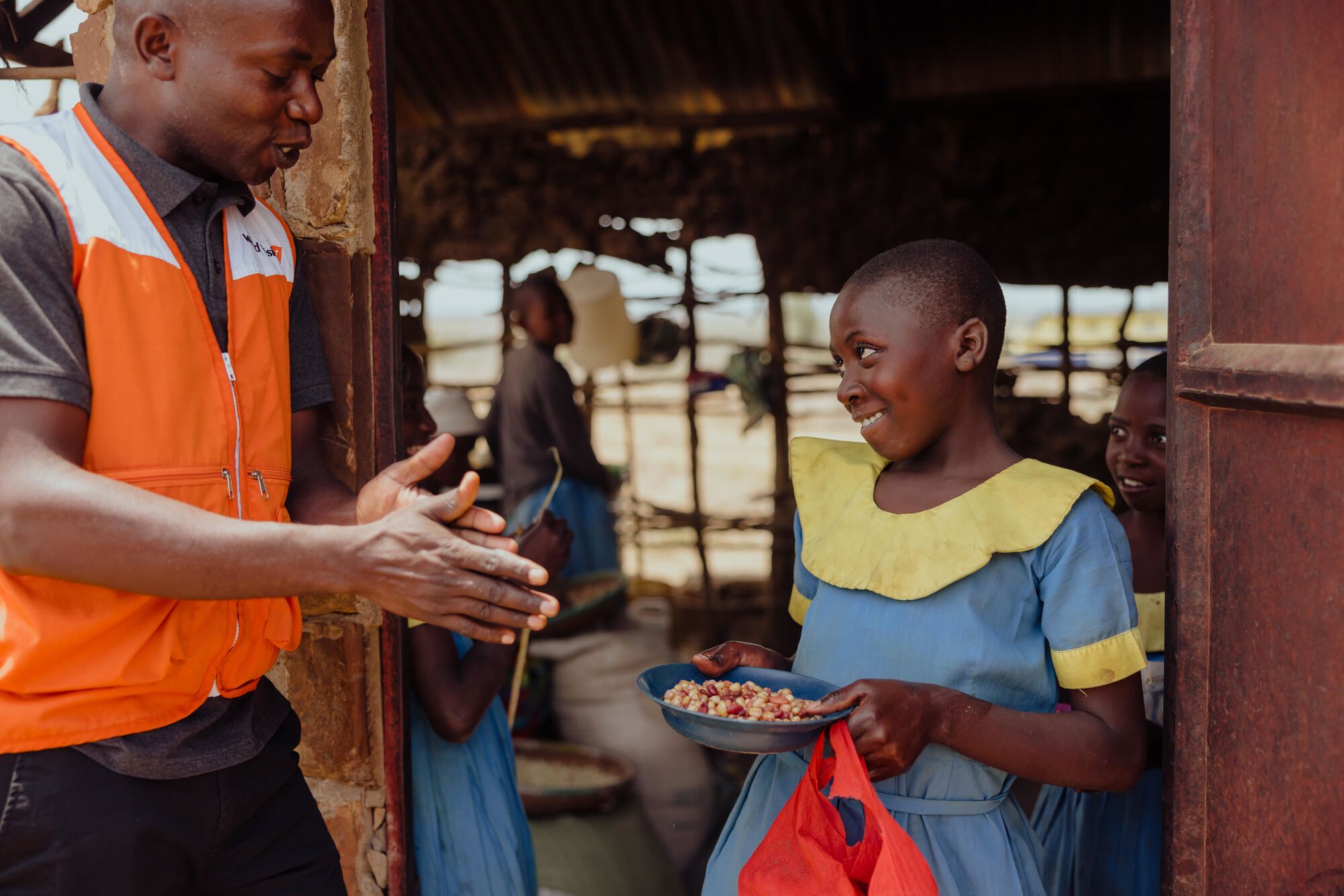
Working, trafficked, and abused
Displaced children are especially vulnerable to child protection risks, including abuse, neglect, violence, and exploitation. This is due to several factors, including economic insecurity, food shortages, overcrowded housing, lack of protection mechanisms and reporting pathways, and underlying restrictive and inequitable gender norms.
“There have been reports of increased violence and abuse of children following ration cuts. Some of the main issues being reported include early marriage, physical violence, financial violence, and harassment. These issues are often related to the heightened economic and social pressures that families face during periods of ration cuts. When families struggle to meet their basic needs, it can lead to increased stress and tensions within households.”
Sexual exploitation and child marriage
With each ration cut, malnutrition rises and families increasingly resort to dangerous strategies to cope. Families struggling to make ends meet may hope that their daughters will be safer and better cared for living with a husband, and that with fewer mouths at home they will be better able to feed their remaining children.
Overall, almost a third (31%) of caregivers in our sample thought that the ration cuts were pushing girls into early marriage.
Child marriage is a grave violation to girls’ rights, leaving them more likely to experience sexual violence and less likely to complete their education or find a well-paying job in the future.
Child trafficking, family separation and child labour
In times of crisis, parents and caregivers will often send their children to live with a relative or friend who is better able to afford their child, but being sent away can leave children vulnerable to exploitation and abuse.
“My father forces me to go to work outside the camp, but I fear to go there.”
In our sample, 45% caregivers said there had been an increase in child labour as children began working following the ration cuts. In focus groups, both boys and girls spoke about pressures to find jobs to help support their families. However, the pressure seemed to be greater for boys, who worked hard physical jobs (Uganda, Somalia, Lebanon) while girls took on more chores at home or found work as a housemaid (Somalia).
“We noticed that starting from 6 years old, parents are pulling their children from school to work and help them purchase food. For example, they are selling tissues on the street to be able to support their parents financially. Food ration cuts increased the amount of child labour in society.”
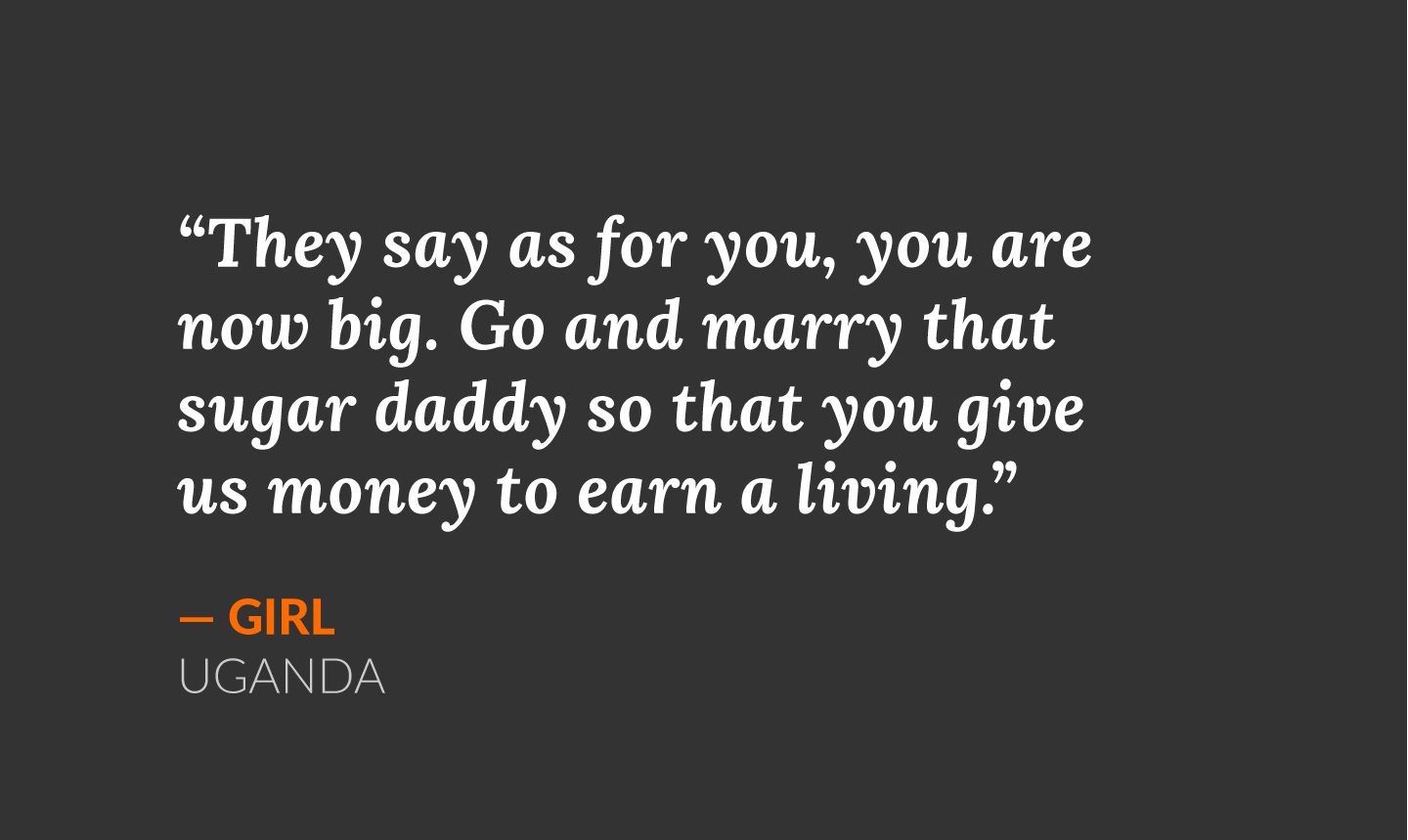
Impact of cuts on children:
The top concerns reported by community members:

56% of children
unable to concentrate in school due to hunger/lack of food

54% of children
received an inadequate diet at home

52% of children
are disinterested in attending school when hungry

53% of parents or caregivers
cannot afford education expenses
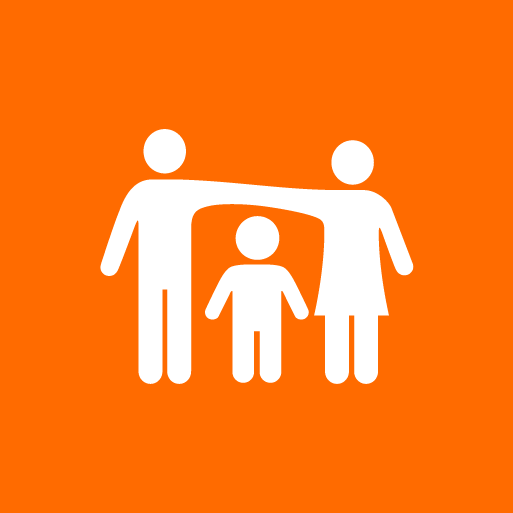
45% of children
started engaging in casual labour following ration cut

50% of parents or caregivers
are spending less on children health-care needs
FINDING NO. 6
Ration cuts are impacting education
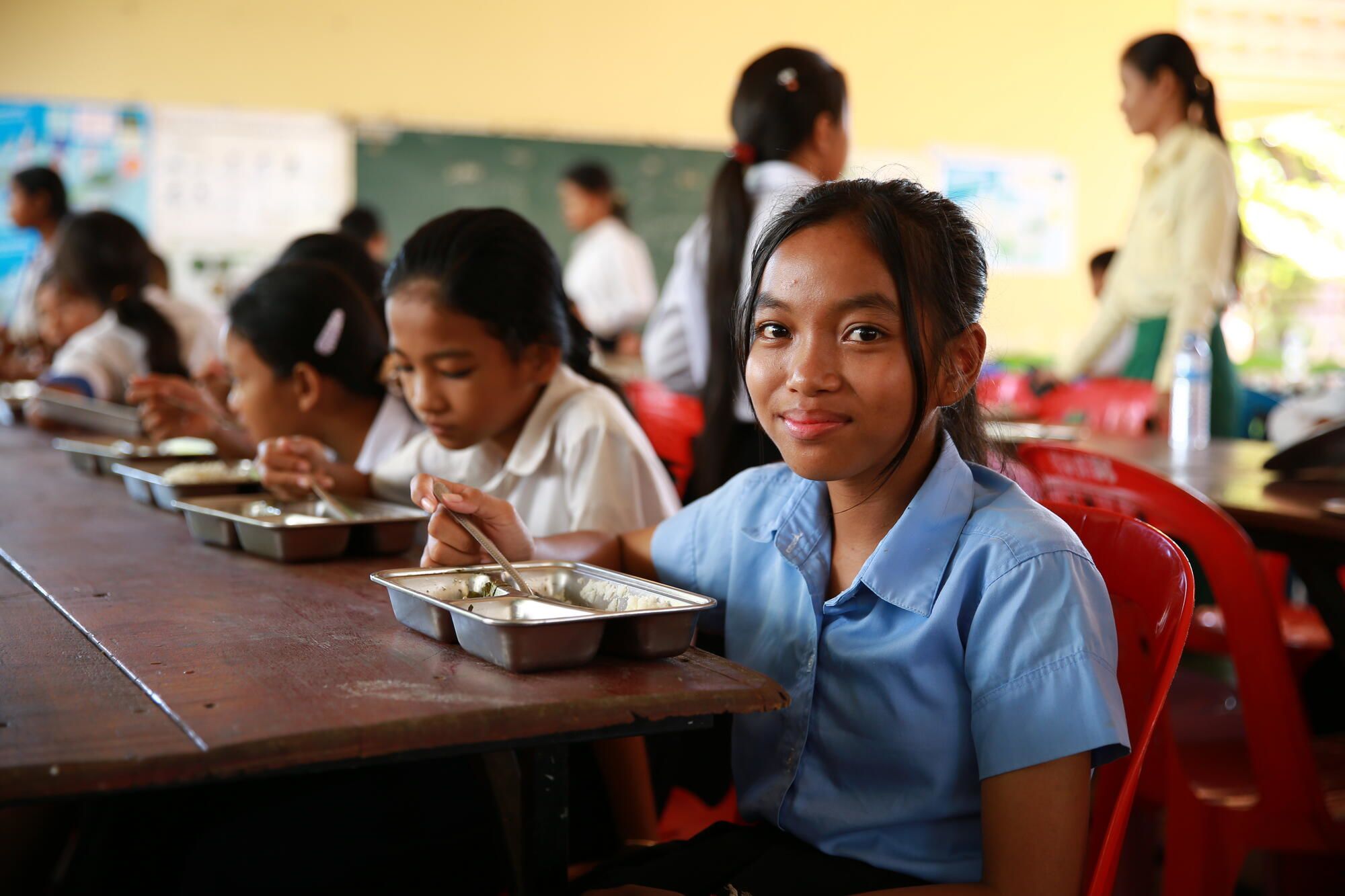
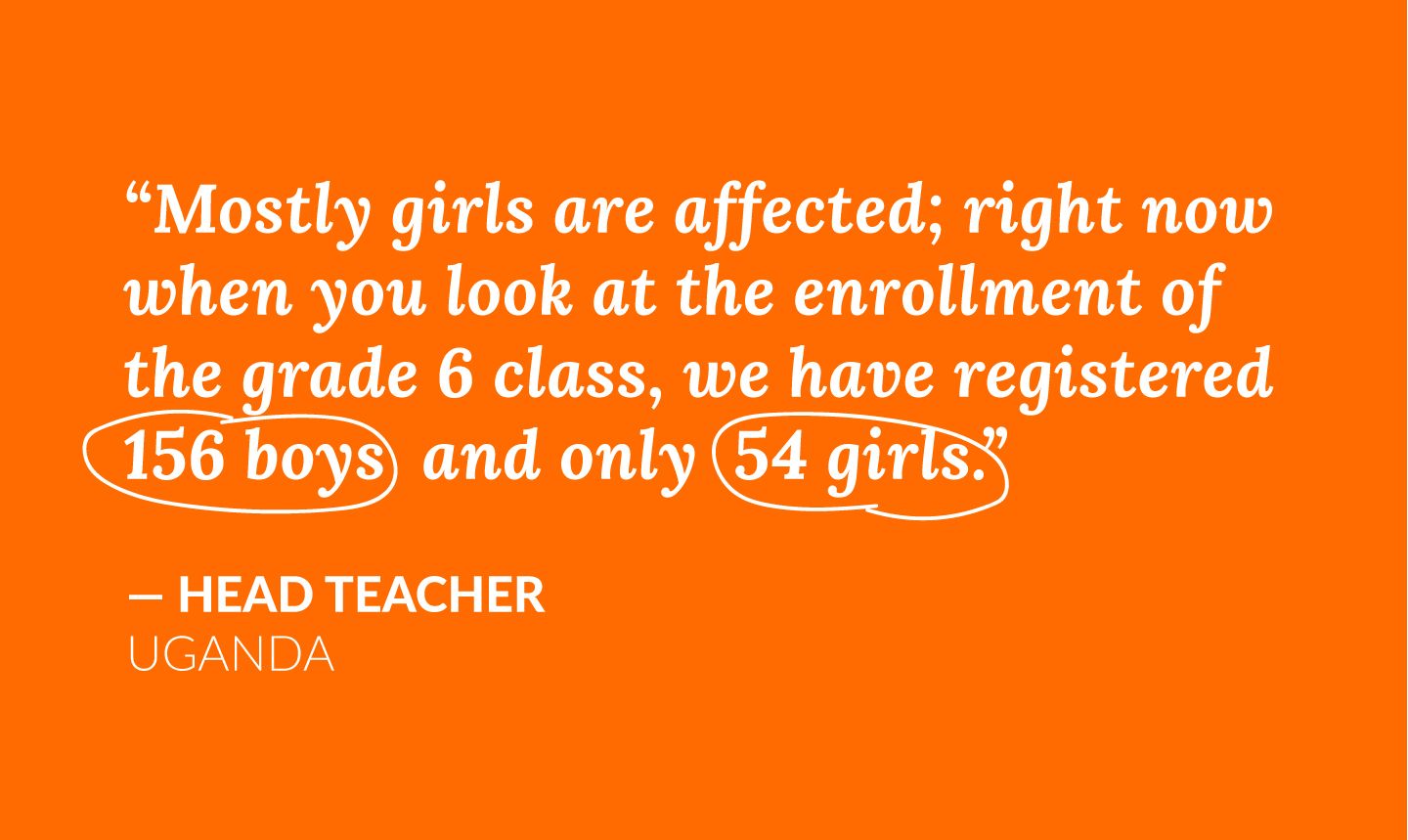
A lost generation
“We are dropping out from schools to work and help our families.”
Although education is a human right, in times of crisis it can quickly be abandoned as families flee, parents and caregivers struggle to make ends meet, and refugee and displacement camps take time to develop infrastructure. Even prior to the COVID-19 pandemic, almost one-third of primary and secondary school students in crisis-affected countries were out of school.
High expenses, inability to concentrate and gender
Unsurprisingly, our survey results indicate that refugee children’s education has been the most affected by the ration cuts. More than half of refugee parents and caregivers say that their peers are no longer able to afford education expenses or are having their children drop out to beg or work.
Aside from the financial implications of the reduced rations, hunger itself makes it difficult for children to go to school or concentrate on lessons. Almost 66% of refugee households reported that their children are disinterested in attending school when hungry, and 71% report that they are unable to concentrate in school due to hunger.
There is also a gender element, as evidence has shown that girls are more likely than boys to be forced to drop out of school when facing financial pressures.
FINDING NO. 7
Ration cuts are putting social cohesion at risk within homes and entire communities
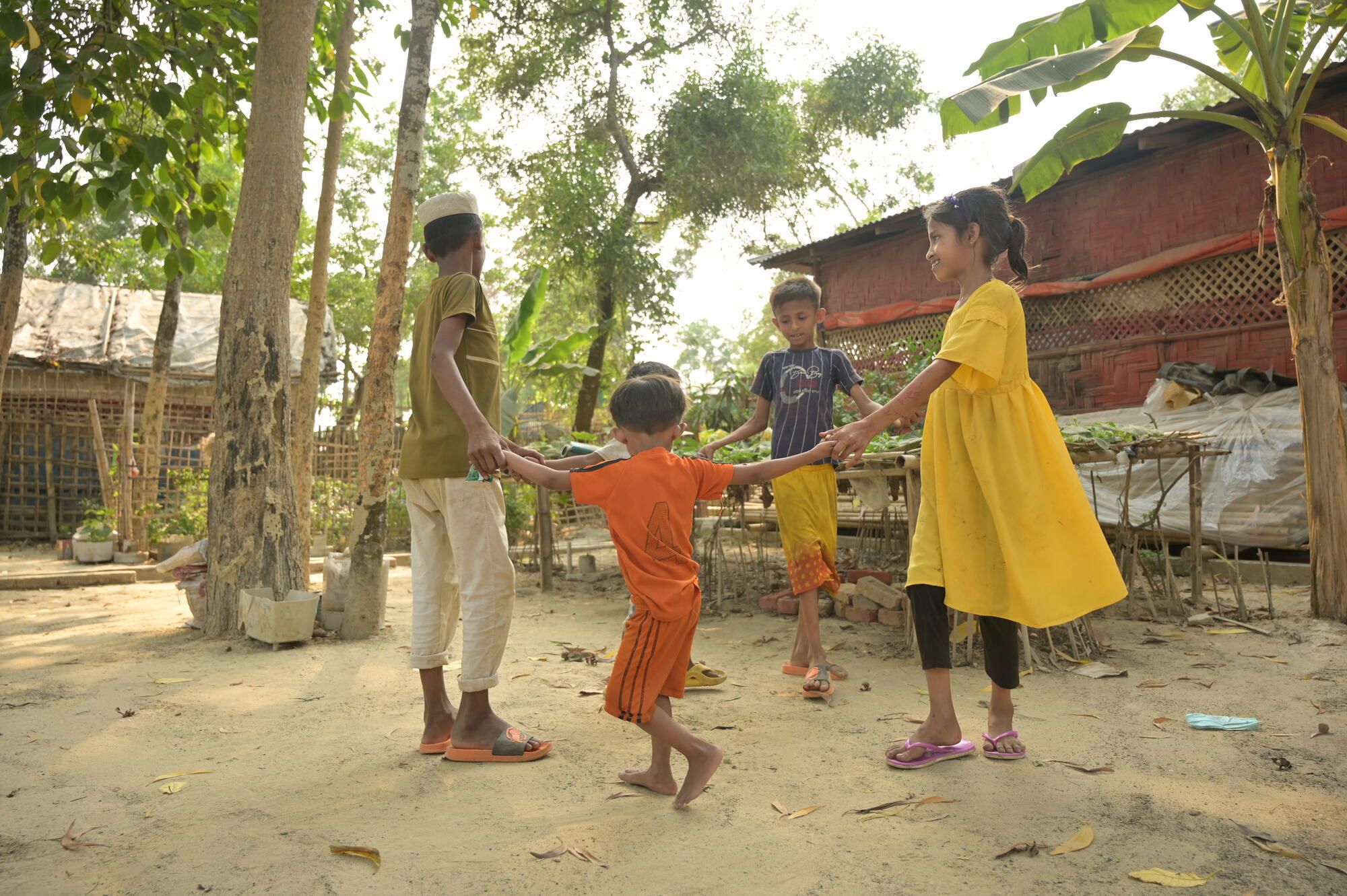
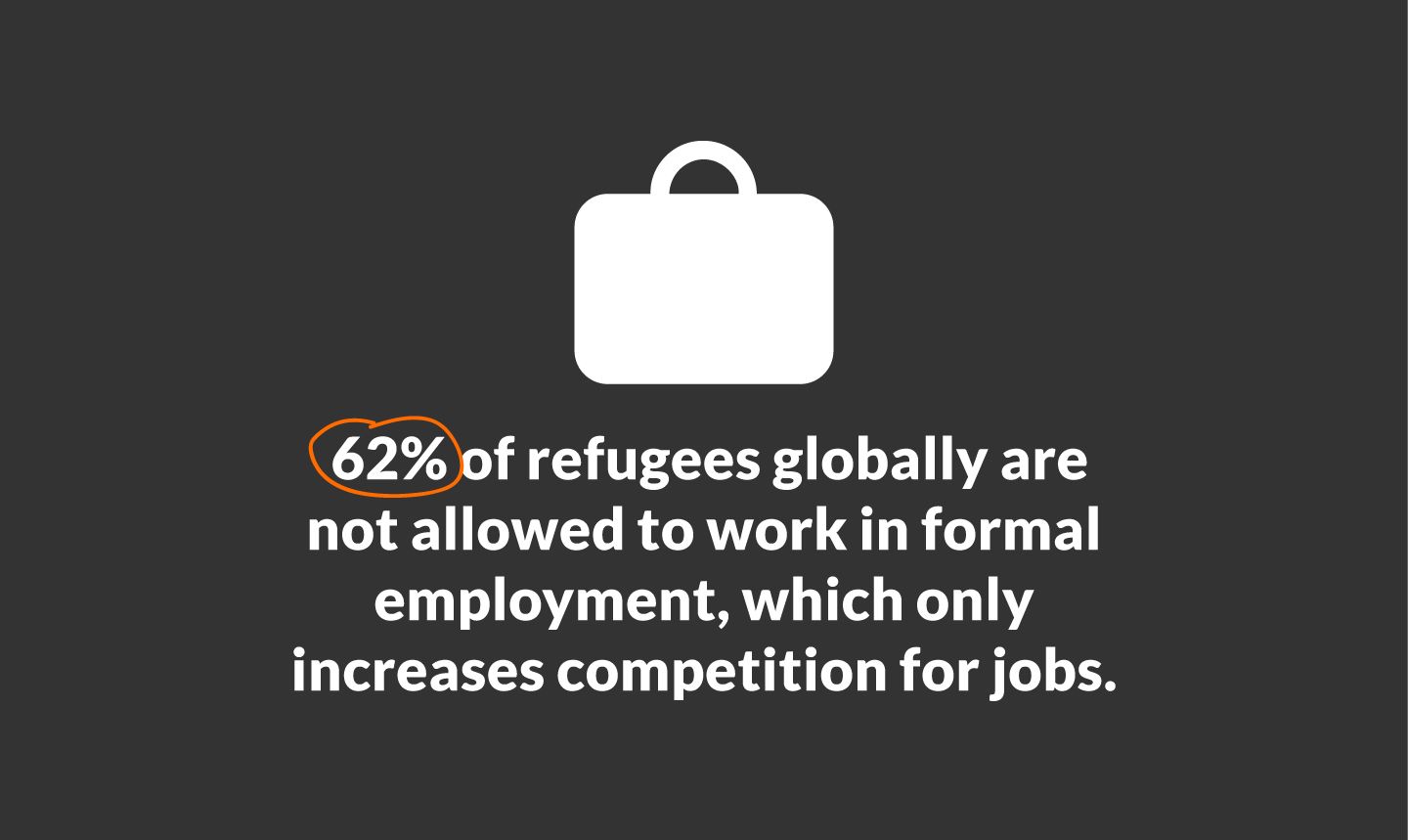
Rising tension between family and community members
When bellies are empty, tension rises in the home and beyond. In addition to children being separated from their families, qualitative findings show that in some cases, ration cuts led to the displacement of families altogether to search for better resources elsewhere, leaving their livelihoods behind. Ration cuts have reportedly also increased fights and quarrels in the family, which subsequently lead to higher cases of domestic violence.
“When families struggle to meet their basic needs, it can lead to increased stress and tensions within households. This can exacerbate preexisting vulnerabilities and inequalities, making children more susceptible to various forms of violence and abuse.”
At the community level, theft and quarrels with neighbours and different members of the same community has increased due to ration cuts. A third (32%) of respondents reported increased conflict and tension in the community, with higher levels amongst refugees (43%) as well as respondents in Afghanistan (79%), Lebanon (55%), and Uganda (55%).
In light of the ration cuts, 44% of community members find themselves competing for livelihood opportunities or other resources to compensate for the reduced amount of food. Given that 62% of refugees globally are not allowed to work in formal employment, access to job opportunities is even more limited, which makes the competition amongst members even higher.
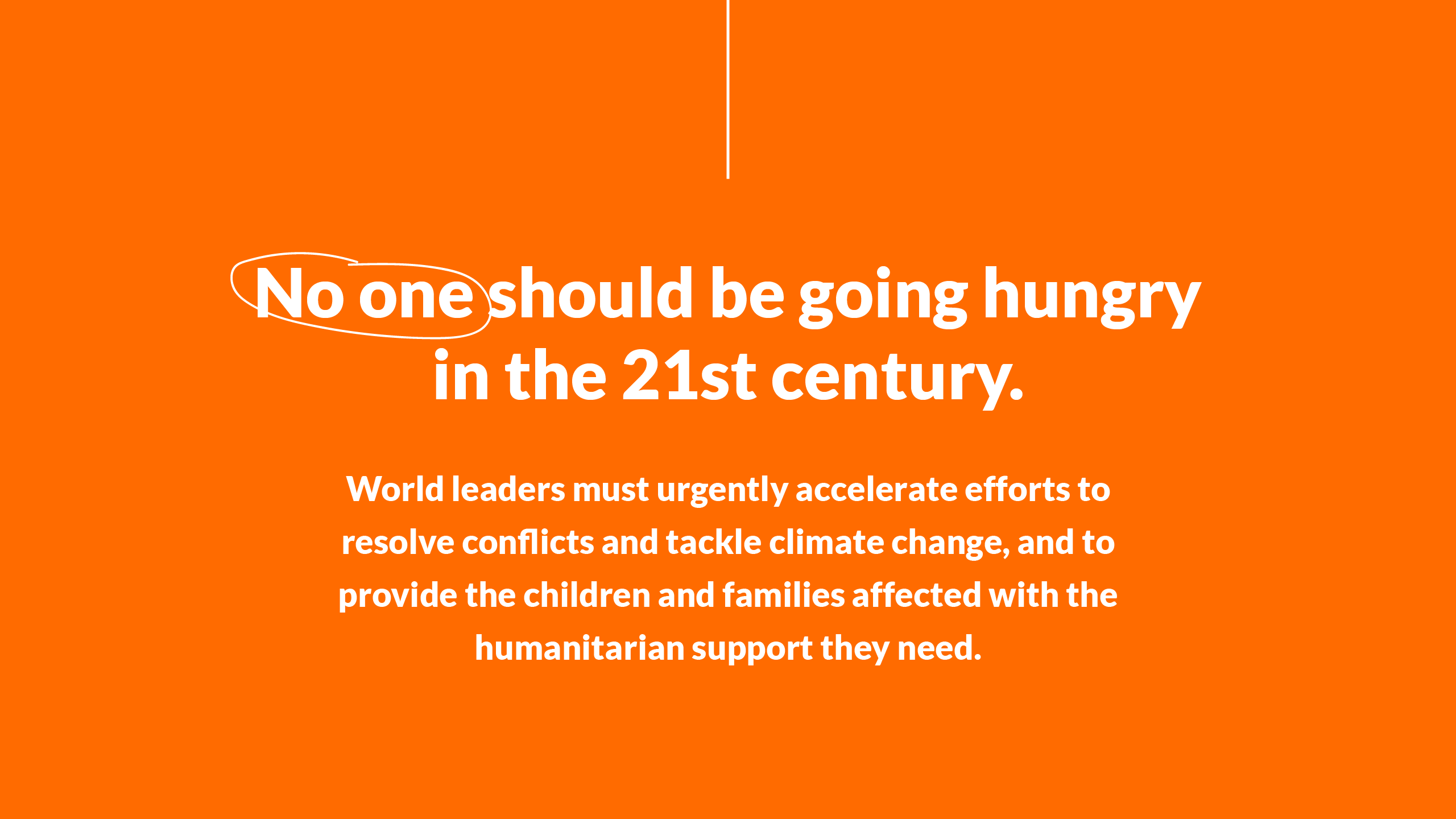
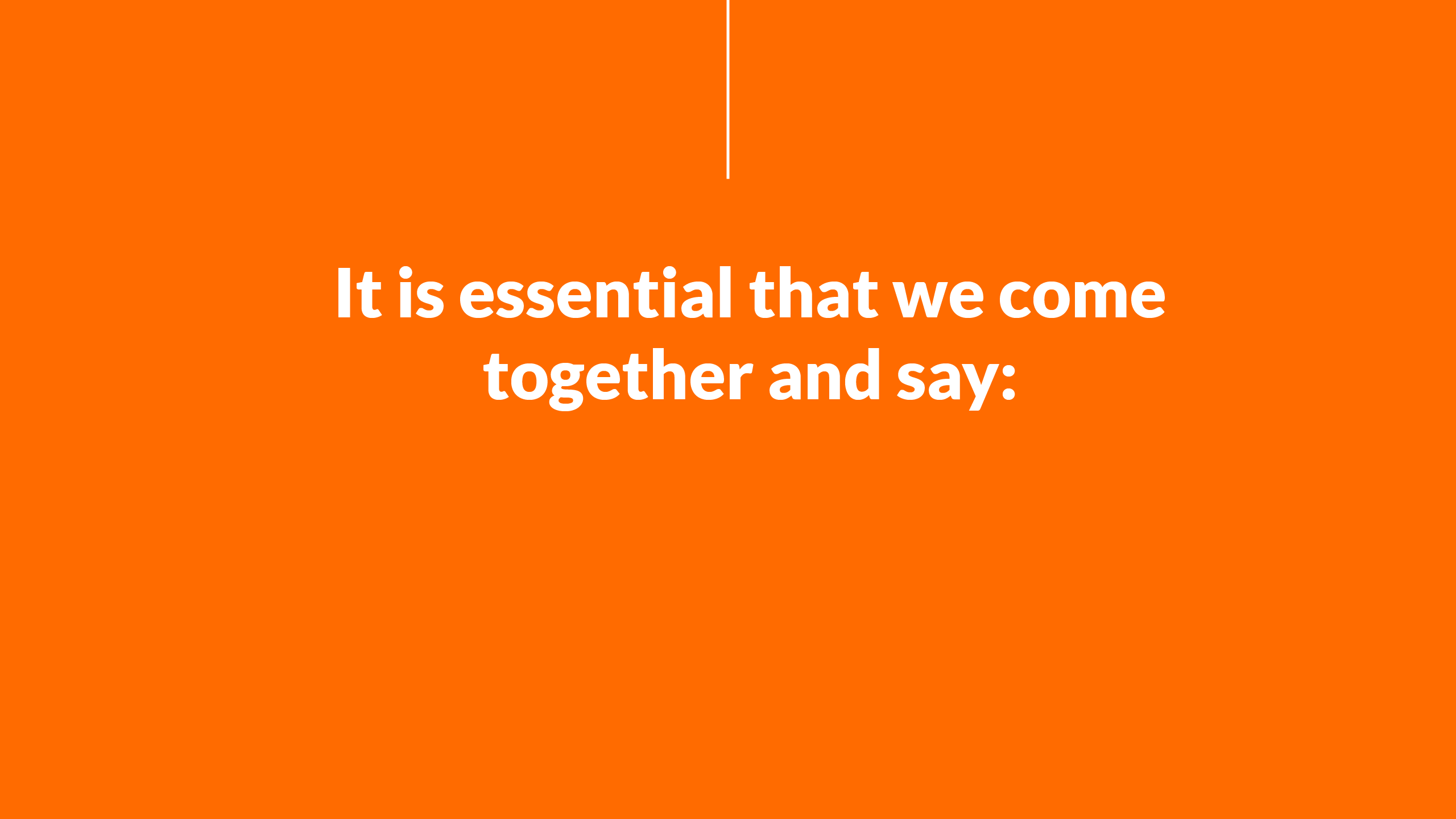

We believe ending hunger and nutrition crises once and for all is possible.
Bringing people back from the edge of starvation requires political will, accountability, going further to build resilience, and funding humanitarian response plans and humanitarian–development–peacebuilding nexus approaches to address the underlying causes and drivers of these crises.
As a matter of urgency, we're calling on:

Donors
- To provide flexible funding to prevent millions from starving address root causes of hunger.
- To fund gender-responsive nutrition, education, child protection, mental health, livelihood support, and school feeding programmes.
- To address roots causes of hunger by investing in peacebuilding and development.

National Governments
- To ensure enough nutritious food for every child, no matter where they live.
- Ensure national health and social protections systems are in place.
- Ensure forcibly displaced children able to access quality education.

Humanitarian Actors
- To ensure food and nutrition programming reaches the most vulnerable (children, women, and people with disabilities).
- To prioritise the protection of children in all humanitarian responses.

All Parties of Conflict
- To abide by their obligations under international humanitarian, human rights, and refugee law.
- To prioritise their commitments to UNSC resolutions for the protection of civilians in armed conflict.
- To engage in dialogue and negotiations to find peaceful and sustainable solutions to address the causes of food insecurity, hunger, and malnutrition.
